
- Majors & Careers
- Online Grad School
- Preparing For Grad School
- Student Life

The Top 9 Fully Funded PhD Programs
If you’re concerned about grad school costs, you’re not alone. Even with financial aid, many students find themselves taking on large amounts of debt. However, there are a number of options that can cover most – if not all – of your doctorate costs.
Table of Contents
What Is a Fully Funded PhD Program?
“Fully funded” means that the university offers sufficient funding to cover tuition fees and even a stipend to cover other grad school expenses . To cover gaps, many institutions offer additional support in the form of grants, scholarships, loans, and employment opportunities.
Though rare, some PhD programs offer full funding for all accepted students. Understandably, the admission process is highly competitive for fully funded PhD programs.
Students who don’t meet strict criteria – and aren’t offered full funding – will be expected to pay for their tuition and other study expenses. Most take some form of government funding to do so.
The Top 9 Fully Funded PhD Programs in the US
1. the university of chicago, the department of anthropology, phd in anthropology.
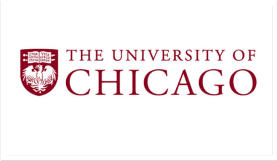
- Courses : Development of Social/Cultural Theory, Archeological Theory & method, and archeological data sets.
- Credits : 18 courses
- Delivery : On-campus
- Full funding : Full tuition, health insurance, and stipend (up to 9 years).
- Other support : Grants, fellowships, and teaching opportunities.
- Acceptance rate : 2.5%
- Location : Chicago, Illinois
With a culture that encourages independent thinking, the University of Chicago has produced more than 90 Nobel Prize winners and produced defining research in several fields. In this interdisciplinary PhD in Anthropology program, students can study with many of the university’s other departments, including: Political Science, History, and Comparative Human Development.
2. Harvard University, T. H. Chan School of Public Health
Phd program in biological sciences in public health (bph).

- Courses : Biological sciences communications, principles of biostatistics & epidemiology, and computing environments for biology.
- Duration : Approximately 6 years
- Full funding : Stipend, tuition, and health insurance.
- Other support: Fellowships, awards, and grants.
- Acceptance rate: 6%
- Location: Boston, Massachusetts
As the third-best university in the US , Harvard’s T. H. Chan School of Public Health has incredible prestige. With several specialized public health departments (e.g., Environmental Health, Health & Population, Epidemiology), this program also offers incredible flexibility. Students can courses from the Department of Public Health, Harvard Integrated Life Sciences (HILS), and even MIT.
3. Stanford University, Graduate School of Education
Phd in curriculum studies and teacher education (cte).

- Courses: Introduction to statistical methods in education, research in curriculum & teacher education, and statistical analysis in education.
- Credits: 135 units
- Duration: 4-5 years
- Delivery: On-campus
- Full funding : Tuition aid, assistantship salary, and fellowship stipend (for 5 years).
- Other support : Grants, travel fellowships, and emergency funds.
- Location: Stanford, California
Stanford University tops the list of the best universities for Education Policy Studies, making this one of the best options if you want to earn a PhD in Education. This doctorate is one of the top fully funded PhD programs in education and offers six specializations, including elementary education, teacher education, and science & environmental education.
Note : In addition to this on-campus PhD program, many recognized institutions also offer free online PhD programs in education .
4. Duke University, Trinity College of Arts and Sciences
Phd in literature.
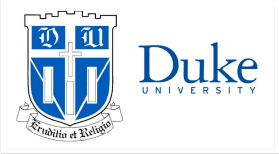
- Courses: Wide range of literary topics, including African American Studies, modern European short fiction, gender studies, and more.
- Duration: 6-7 years
- Delivery: On-campus
- Full funding includes: Tuition, fees, stipend, and health insurance.
- Other support: Grants, loans, childcare subsidies, and financial hardship aid.
- Location: Durham, North Carolina
As one of the country’s most renowned private research institutions, Duke University has ten Nobel Laureates under its belt. Their PhD in Literature program encourages students to pursue both independent studies and inter-institutional courses from other affiliated universities. Students are able to take as many programs outside literature as they wish. Typically, all PhD students receive a “stipend, tuition, and fees support, plus six years of full coverage for health and dental insurance premiums.”
5. Rice University, Jones Graduate School of Business
Phd in business.

- Courses: Microeconomics, econometrics, theory, and dynamic optimization.
- Duration: 4 years +
- Full funding : Tuition waiver and $40,000 yearly stipend (earned as a research/teaching assistant).
- Other support: Scholarships, grants, loans, and student employment.
- Location: Houston, Texas
Rice University is a well-known institution and is regularly recognized as one of the best business schools in the country. As part of its PhD in Business program, students can choose between one of four different concentrations: accounting, finance, organizational behavior, and strategic management.
Northwestern University, McCormick School of Engineering
Phd in biomedical engineering.
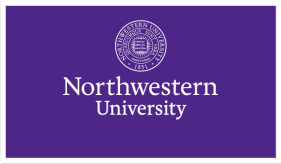
- Courses: Experimental design & measurement, biological performance of materials, and advanced physical & applied optics.
- Duration: 5-6 years
- Full funding : Tuition scholarship and stipend.
- Other support: Fellowships, grants, assistantships, loans, and veteran benefits.
- Acceptance rate: 15%
- Location: Evanston, Illinois
Northwestern University is renowned for excellence across numerous disciplines, and its biomedical engineering (BME) program was among the first of its kind. The school offers a wide range of courses, from cell and molecular engineering, medical devices and instrumental, neural engineering, and more.
7. Columbia University, Teachers College
Phd in clinical psychology.
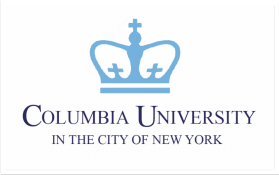
- Courses: Brain & behavior, social problems for clinical psychologists, and personality & behavior change.
- Credits: 95
- Duration: 5 years (at least four years of residency)
- Full funding : Tuition, stipend, and health fees (up to 4 years).
- Other support: Scholarships, grants, fellowships, federal work-study, assistantships, and loans.
- Acceptance rate: 7%
- Location: New York City, New York
Columbia University offers a leading clinical psychology PhD program that focuses on the intersection between education, psychology, and health. Their fully funded, need-blind “Doctoral Fellowship” is given to incoming students for three years, in addition to financial aid in the fourth year (i.e., a $25,000 stipend). PhD students who receive this scholarship may be asked to work as research assistants or graduate teachers.
8. California Institute of Technology, Division of Engineering & Applied Science
Graduate degree in computer science.
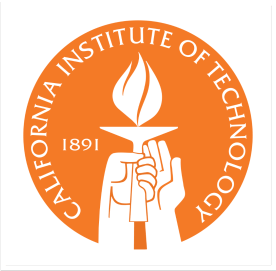
- Courses: Functional programming, computability theory, and advanced digital systems design.
- Credits: 54 units
- Duration: 3+ years of residence
- Full funding : Tuition charges and stipends.
- Other support: Grants, scholarships, loans, and work-study.
- Acceptance rate: 7%
- Location: Pasadena, California
Caltech is a huge name in technology education, with over fifty cutting-edge research centers and laboratories. This includes NASA’s Jet Propulsion Laboratory and astronomical observatories around the globe. To manage their rigorous course load, graduate students of the computer science program receive full tuition and a stipend of $45,000 .
9. Emory University, College of Arts and Sciences
Ph.D. in Economics

- Courses: Microeconomic theory, health economics, and market structure & imperfect competition.
- Credits: 55
- Duration: 4-6 years
- Full funding : Tuition, stipend, health insurance subsidy, and professional development support.
- Other support: Grants, scholarships, loans, and student employment.
- Acceptance rate: 19%
- Location: Atlanta, Georgia
Emory University provides a liberal arts college’s atmosphere and opportunities combined with an urban research university’s facilities. This cross-registration program allows students to take classes at the university’s partner institutions, including Georgia Tech and Georgia State University, alongside their in-house courses.
Can I Earn a Free PhD Degree Online?
If you aren’t eligible for a fully funded program, that’s okay! We’ve written an article outlining the most affordable online PhD programs , the benefits, and how to apply to them!
Key Takeaways
Many US universities – including some of the country’s top institution – offer fully funded PhD programs and tuition-free online programs across various disciplines. You’ll just need to demonstrate that you’re eligible for the program through your academic performance and merit.
Once you qualify for full PhD funding, congratulate yourself on a job well done!
If you’re still weighing your options, did you know there are 1-year PhD programs online ?
Frequently Asked Questions
Can a phd be free.
Yes. Eligible students can obtain a doctorate for free if a university offers fully funded PhD programs.
How Do I Get a Fully Funded PhD?
To qualify for a fully funded PhD, you’ll be required to meet certain criteria and put together a strong application. You’ll also need to have an excellent undergraduate academic record, recommendation letters, persuasive personal essay, and graduate school entry exam scores .
Fully funded PhDs are incredibly competitive, so it’s important to plan ahead. As an undergraduate student, identify your dream school, and be sure to check the requirements and eligibility criteria. Next, work hard to meet these requirements – and set yourself apart – throughout your undergraduate studies.
Can I Study a PhD in the USA for Free?
Yes. Many US universities offer opportunities to obtain a PhD for free. For example, fully funded doctoral programs will cover your tuition and expenses. Free PhD programs don’t have tuition fees but students are responsible for covering their own expenses.
However, if you aren’t successful in securing a fully funded PhD and don’t like the free options, there are plenty of other ways to pay for grad school .

Lisa Marlin
Lisa is a full-time writer specializing in career advice, further education, and personal development. She works from all over the world, and when not writing you'll find her hiking, practicing yoga, or enjoying a glass of Malbec.
- Lisa Marlin https://blog.thegradcafe.com/author/lisa-marlin/ ACBSP Vs AACSB: Which Business Program Accreditations is Better?
- Lisa Marlin https://blog.thegradcafe.com/author/lisa-marlin/ BA vs BS: What You Need to Know [2024 Guide]
- Lisa Marlin https://blog.thegradcafe.com/author/lisa-marlin/ The 19 Best MBA Scholarships to Apply for [2024-2025]
- Lisa Marlin https://blog.thegradcafe.com/author/lisa-marlin/ 25 Best Gifts for Law Students for 2024
Top 10 Best Master’s in Business Intelligence Programs
5 tips for an amazing video interview, related posts.

The 18 Best Scholarships for Black Students in 2024-2025

The 19 Best MBA Scholarships to Apply for [2024-2025]

Top 30 Scholarships for Women for 2022/2024

Top 10 Best 1-Year PhD Programs Online

Graduate School Scholarships: A Comprehensive Guide

How Much Does Grad School Cost? A Simple Guide

Leave a Reply Cancel reply
Your email address will not be published. Required fields are marked *
Save my name, email, and website in this browser for the next time I comment.
Recent Posts
- Is a Master’s Degree Worth It? [2024 Guide]
- 73% of job seekers believe a degree is needed for a well-paying role–but is it?
- Graduate Certificate vs Degree: What’s the Difference? [2024 Guide]
- ACBSP Vs AACSB: Which Business Program Accreditations is Better?
- What is a Good GRE Score?

© 2024 TheGradCafe.com All rights reserved
- Partner With Us
- Results Search
- Submit Your Results
- Write For Us
- Search All Scholarships
- Exclusive Scholarships
- Easy Scholarships to Apply For
- No Essay Scholarships
- Scholarships for HS Juniors
- Scholarships for HS Seniors
- Scholarships for College Students
- Scholarships for Grad Students
- Scholarships for Women
- Scholarships for Black Students
- Scholarships
- Student Loans
- College Admissions
- Financial Aid
- Scholarship Winners
- Scholarship Providers
Student-centric advice and objective recommendations
Higher education has never been more confusing or expensive. Our goal is to help you navigate the very big decisions related to higher ed with objective information and expert advice. Each piece of content on the site is original, based on extensive research, and reviewed by multiple editors, including a subject matter expert. This ensures that all of our content is up-to-date, useful, accurate, and thorough.
Our reviews and recommendations are based on extensive research, testing, and feedback. We may receive commission from links on our website, but that doesn’t affect our editors’ opinions. Our marketing partners don’t review, approve or endorse our editorial content. It’s accurate to the best of our knowledge when posted. You can find a complete list of our partners here .
Top Fully Funded PhD Programs

Karla Ibarra is a content writer at Scholarships 360. She has worked as an English teacher and writing tutor. As a writing tutor, she has experience editing scholarships and college application essays. Karla graduated from Texas A&M University with a degree in Communication and a minor in English.
Learn about our editorial policies

Maria Geiger is Director of Content at Scholarships360. She is a former online educational technology instructor and adjunct writing instructor. In addition to education reform, Maria’s interests include viewpoint diversity, blended/flipped learning, digital communication, and integrating media/web tools into the curriculum to better facilitate student engagement. Maria earned both a B.A. and an M.A. in English Literature from Monmouth University, an M. Ed. in Education from Monmouth University, and a Virtual Online Teaching Certificate (VOLT) from the University of Pennsylvania.

Fully funded PhD programs offer students seeking their doctor of philosophy degrees the ultimate experience. With the average cost of a PhD at nearly $100,000 , students are able to focus on their studies without worrying about paying for their degrees or living expenses. Keep reading to learn about some of the top fully funded PhD programs in a variety of majors.
What is a “Doctorate of Philosophy” degree?
A “doctorate of philosophy” degree, better known as a PhD, is among the highest level degrees in the United States. A PhD is awarded after the successful completion of an extensive research and writing project known as a dissertation. Students can earn a PhD in a variety of fields, with most majoring in the humanities or social sciences.
Further reading: What is a PhD?
How we chose the fully funded PhD programs on our list
We looked for programs that have stellar reputations in their respective majors. It makes sense that the most reputable programs offer the resources that are most important to PhD students. Working with distinguished professors in their field and having access to outstanding libraries, PhD students will be immersed in the ideal learning environment.
Opportunities to learn under and network with the most well regarded academics is invaluable for students’ future careers. Finally, we looked for fully funded programs that include not only full tuition coverage, but also living stipends and health insurance. A few of the programs might require students to “give back” in the way of graduate assistantships , so keep that in mind as you read the fine print on each website.
Apply to these scholarships due soon

$10,000 “No Essay” Scholarship

$2,000 Sallie Mae Scholarship

“Get Inspired” TikTok Scholarship

Niche $25,000 “No Essay” Scholarship

TikTok Diploma Frame Giveaway

$25k “Be Bold” No-Essay Scholarship

Foster Greatness Scholarship

“Jump for Joy” InstaScholarship

$2,000 Niche “No Essay” College Scholarship
The top fully funded phd programs.
The following list is in alphabetical order with no preference for one particular program. We included a variety of majors in different regions, but remember, this is just the start of an exhaustive listing of fully funded PhD programs across the USA and the world!
Boston College’s PhD in English
The PhD in English Program at Boston College prepares students for careers in academia or other English related fields. With a focus on critical thinking, writing, and research, the program explores literature through abstract, cultural, and historical contexts. Students are able to focus on various literature periods, creative writing, and literary theory.. Working closely with renowned faculty, the program offers abundant resources and support services including fellowships and publishing opportunities.
- Location: Chestnut Hill, Massachusetts
- Focus of study : Creative writing, critical theory, and literary and cultural studies
- What is included : Full tuition remission, health insurance, and a living stipend
Brown University PhD in Computer Science
Brown University offers a PhD program in Computer Science for students interested in a strong foundation in computer science theory and applications and opportunities to conduct research in collaboration with faculty and peers. Brown’s computer science department has research strengths in artificial intelligence, data science, cybersecurity, computer graphics, and theory. The program is designed to provide students with the skills and knowledge needed to conduct independent research in computer science and to prepare them for academic or industrial careers.
- Location: Providence, Rhode Island
- Focus of study : Algorithms, artificial intelligence, computer systems, databases, and more
- What is included : Full tuition, health insurance, and living stipend
Cornell University PhD in Chemical Engineering
Cornell University offers a PhD program in Chemical Engineering to provide students with a broad foundation in chemical engineering principles and their application to solving real-world problems. The program aims to train students in core courses in chemical engineering, including transport phenomena, thermodynamics, and reaction engineering, while providing them with opportunities to conduct original research. Students in the program have access to state-of-the-art research facilities, funding opportunities, and a supportive community of faculty and fellow students.
- Location: Ithaca, New York
- Focus of study : Chemical engineering principles and research topics including biotechnology, energy, materials science, and process systems engineering
- What is included: Full tuition waiver, stipend, and health insurance
Duke University PhD in Literature
Duke University’s PhD program in literature prepares students for careers in academic research and teaching. The program offers a variety of courses in literary theory, criticism, and methodology, as well as opportunities to specialize in specific genres, periods, and cultures. The program also encourages interdisciplinary work, with opportunities to collaborate with scholars in other fields across the university. Graduates of the program have gone on to careers in academia, publishing, journalism, and other areas.
- Location: Durham, North Carolina
- Focus of study : Literary theory, research methods, and a range of cultural and literary texts
- What is included : Five years of living stipend, tuition, and fees support as well as six years of health and dental insurance
Harvard University PhD Program in Biological Sciences in Public Health
The PhD program in Biological Sciences in Public Health at Harvard University is designed for students who want to pursue research in the field of public health with a focus on biological sciences. The program focuses on the intersection of biology and public health, specifically emphasizing understanding the biological mechanisms underlying disease and developing strategies to prevent and treat illness. PhD students receive a rigorous education in both biological and public health sciences, preparing them to become leaders in advancing our understanding of human health and disease.
- Location: Boston, Massachusetts
- Focus of study : Cancer biology, environmental health, genetics, global health and infectious diseases.
- What is included : Competitive funding packages, including tuition waivers, stipends, and health insurance
Johns Hopkins University PhD in Nursing
The PhD in Nursing program at Johns Hopkins University is designed to prepare nurse scientists who will conduct research to advance nursing science and improve the health and well-being of individuals, families, and communities. The program is designed to be interdisciplinary, integrating knowledge from nursing, social and behavioral sciences, and biostatistics. PhD students may work as nursing faculty members, researchers, or policymakers, contributing to advancing nursing practice and developing nursing knowledge.
- Location: Baltimore, Maryland
- Focus of study : Aging and dementia care, cardiovascular and chronic care, community and public health, health systems and outcomes, and more
- What is included: Full tuition with a stipend for the first three years of study
New York University PhD in Education
New York University offers a PhD in Education through its Steinhardt School of Culture, Education, and Human Development. The program provides a solid foundation in education theory and research methods, including coursework, research apprenticeships, and independent research. Upon graduation, students are well-prepared to pursue careers in academia, research, policy, and leadership in educational organizations. They are also equipped with the skills and knowledge to contribute to developing and implementing policies and practices in education.
- Location: New York, New York
- Focus of study : Learning sciences, educational policy, educational technology, and curriculum development.
- What is included: Annual stipend, tuition coverage for required course work, and health insurance through the fifth year
Princeton University PhD in Mathematics
Princeton University offers a PhD program in mathematics that is designed to prepare students for careers in academia, industry, or government. The program aims to provide a rigorous and comprehensive mathematics education, emphasizing both the theoretical foundations and applications of the discipline. Students take advanced courses in various mathematical fields, such as algebra, geometry, analysis, topology, and applied mathematics. Princeton’s program in mathematics is widely regarded as one of the world’s most prestigious and rigorous programs.
- Location: Princeton, New Jersey
- Focus of study : Algebraic geometry, mathematical physics, number theory, and topology
- What is included: Full tuition and student health plan coverage
Rice University PhD in Business
Rice University offers a PhD in Business through its Jones Graduate School of Business, designed to prepare students for academic careers and research-oriented positions in industry and government. Students in the program take courses in microeconomics, econometrics, statistics, research methods, and business ethics. In addition to coursework and research, students in the program are encouraged to work as teaching or research assistants. Rice University’s PhD program provides students with a strong foundation in business theory and research methods, with opportunities to work with world-class faculty on cutting-edge research projects.
- Location: Houston, Texas
- Focus of study : Accounting, finance, management, marketing, and strategic management
- What is included : Waived tuition fees, a stipend to cover living expenses, health insurance, and may be eligible for research and travel funding to support their research projects
University of Chicago PhD in History
The PhD program in History at the University of Chicago is a demanding but rewarding experience that prepares students for a career in academia as scholars or teaching in the field of history. The program focuses on developing students’ knowledge of cultural, intellectual, economic, political, and social history under the guidance of highly qualified faculty advisors. PhD students also have the opportunity to present their research at conferences and publish articles in academic journals.
- Location: Chicago, Illinois
- Focus of study : Ancient, contemporary, early modern, medieval, or modern history
- What is included: Tuition, student health insurance, and a stipend for living expenses and research support
University of Michigan PhD in Engineering
The PhD in Engineering at the University of Michigan is a top-rated program that prepares students for research and academic careers in various engineering disciplines, including biomedical engineering, chemical engineering, civil and environmental engineering, electrical engineering, and many more. PhD students are equipped with the skills and knowledge necessary to conduct independent research, develop new technologies, and advance the engineering field. The University of Michigan has a strong reputation for research and innovation, and the PhD program in Engineering provides students with ample opportunities to collaborate with faculty and industry partners.
- Location: Ann Arbor, Michigan
- Focus of study : Materials science, mechanical engineering, electrical engineering, and computer science.
- What is included: Tuition waiver, monthly living stipend, and health insurance
University of North Carolina PhD in Media and Communication
The PhD program in Media and Communication at the University of North Carolina provides students with advanced knowledge and skills in media and communication theories, research methods, and critical analysis. Students can tailor their studies to their research interests by choosing from a variety of electives and seminars offered by the department. Graduates of the program have gone on to work in academia, media organizations, research institutions, and other industries where communication skills and media literacy are highly valued.
- Location: Chapel Hill, North Carolina
- Focus of study : Media and politics, journalism studies, digital media, global media, media effects, and cultural studies
- What is included: Tuition and fees for three years, health insurance, a $20,000+ annual stipend, and support for research and travel
Frequently asked questions about fully funded PhDs
What does 'fully funded phd' mean, can international students apply for fully funded phds, how long does a fully funded phd program take, do i need to have a master's degree to apply for a phd, what is the difference between a phd and a professional doctorate.
Keep reading: PhD vs. Doctorate: Everything You Need to Know
Scholarships360 Recommended

10 Tips for Successful College Applications

Coalition vs. Common App: What is the difference?

College Application Deadlines 2023-2024: What You Need to Know
Trending now.

How to Convert Your GPA to a 4.0 Scale

PSAT to SAT Score Conversion: Predict Your Score

What Are Public Ivy League Schools?
3 reasons to join scholarships360.
- Automatic entry to our $10,000 No-Essay Scholarship
- Personalized matching to thousands of vetted scholarships
- Quick apply for scholarships exclusive to our platform
By the way...Scholarships360 is 100% free!
- PhD Degree Funding
Harvard guarantees full financial support to PhD students—including tuition, health fees, and basic living expenses—for a minimum of five years.
- Dissertation
- Fellowships
- Maximizing Your Degree
- Before You Arrive
- First Weeks at Harvard
- Harvard Speak
- Pre-Arrival Resources for New International Students
- Alumni Council
- Student Engagement
- Applying to Degree Programs
- Applying to the Visiting Students Program
- Admissions Policies
- Cost of Attendance
- Express Interest
- Commencement
- Diversity & Inclusion Fellows
- Student Affinity Groups
- Recruitment and Outreach
- Find Your Financial Aid Officer
- Master's Degree Funding
- Federal Student Aid
- Other Sources of Support
- Financial Wellness
- Consumer Information
- Life Sciences
- Policies (Student Handbook)
- Student Center
- Title IX and Gender Equity
Harvard's financial support package is typically for the first four years of study and the completion year, using a tiered tuition structure that reduces tuition over time as students progress through their degree programs. This multiyear funding package includes a combination of tuition grants, stipends, traineeships, teaching fellowships, research assistantships, and other academic appointments. In addition, Harvard Griffin GSAS students are particularly successful in securing grants, fellowships , and other sources of external funding as part of their professional development.
The standard funding package includes:
- grant toward tuition and fees—paid in full for years 1 through 4, plus the dissertation completion year, with a partially subsidized dental plan option available
- living expense stipend during years 1 and 2
- a combination of stipend, teaching fellowships, and/or research assistantships during years 3 and 4
- if noted in your Notice of Financial Support, summer research funding following the first four academic years from Harvard Griffin GSAS or faculty grants
- stipend and/or research support during the completion year.
In some programs, the timing and structure of living expense support may vary from this pattern. For example, students in the sciences typically receive full funding until they complete their degrees.
Financial Aid
Share this page, explore events.
Highest Paying Doctorate Degrees [2024 Guide]
We’ve identified the 25 highest paying doctorate degrees. Compare salaries and job prospects.

Completing a PhD may open up doors in terms of career advancement. Plus, it may not take as long as you think to complete if you enroll in the shortest doctoral programs .
Editorial Listing ShortCode:
The following list contains the highest paying doctorate degrees along with career outlook and job growth statistics.
25 Highest Paying Doctorate Degrees
All career statistics and salary data are provided by the U.S. Bureau of Labor Statistics .
Click on the area of study you’re interested in to jump to that section.
Aerospace Engineering
Chemical engineering, pharmacology, business administration, cybersecurity, electrical engineering, data science, biochemistry, information security assurance, biomedical engineering, information technology and computer science, occupational therapy, criminal justice, engineering, organic chemistry.
While all of these industries are growing, some provide better job prospects than others.

- Annual Median Salary (Bureau of Labor Statistics): $208,000
- Job Growth: 4%
One of the more specialized high paying doctorate programs is in immunology. Immunology is the study of disease prevention and immunity. Due to the specialized nature of the study here, jobs are typically well paid and much more specific.
A person who has studied immunology may be expected to work in research or academia but is also likely to land high-paying roles within the medical industry and at hospitals. The demand for this area of expertise is also rising faster than the average job growth, meaning there should be plenty of opportunities for graduates.
A PhD in immunology is a lot of hard work and is, therefore, suited to someone who already has considerable experience working in the medical industry. Those with an academic background in medicine should consider applying for an immunology program.

- Annual Median Salary (Bureau of Labor Statistics): $129,850
- Job Growth: 7%
Of the three main sciences, physics can be the one that is the most fruitful for taking a doctorate. People who take a PhD in physics are likely to land themselves a position as either a researcher or a professor.
There are also several other high paying positions that are possible for someone who takes this career path, including more specialized roles or becoming lead physicists and consultants.
Physics is also one of the job markets that is predicted to see a considerable amount of growth for the next 10 years. Pursuing a physics doctorate can be perfect for someone who already has experience in physics or someone who already has either a bachelor’s or master’s degree in the subject combined with some practical experience.

- Annual Median Salary (Bureau of Labor Statistics): $118,610
- Job Growth: 3%
Aerospace engineering is a field that would likely attract those who already have a background in either science or engineering. It is one of the fastest growing industries in the world, and demand for jobs is expected to increase as the years roll by. So the length it takes to get a PhD should be taken into consideration so you can quickly enter this field during its booming growth.
The doctorate focuses on the engineering of various different types of spacecraft and can be incredibly demanding. According to the Bureau of Labor Statistics, the salary potential for this field is as high as $171,220.

- Annual Median Salary (Bureau of Labor Statistics): $110,860
Math may not be the glamorous subject to study at doctorate level, but it can open up a wide range of potentially lucrative career options.
Math can allow students to work in various sectors of the economy and business, and they may also work in research or as a math lecturer or professor at a top university.

- Annual Median Salary (Bureau of Labor Statistics): $109,760
- Job Growth: 5%
Taking a doctorate in management can be a logical step in the career of someone who has a history of working in business, project management, or the economy as well as several other sectors.
Earning this doctorate can open up chief executive roles within companies and roles like chief operations officer and supply chain management. It may also lead to regional and national management roles.

- Annual Median Salary (Bureau of Labor Statistics): $108,540
Another engineering-based field that presents doctorate students with some big money career options is chemical engineering. The field combines a number of different disciplines, including all of the sciences, math, and statistics, as well as engineering.
It is a complex doctorate to take, but the rewards may be worth the effort, with the Bureau of Labor Statistics showing salaries up to $168,960 available in this field.

- Annual Median Salary (Bureau of Labor Statistics): $108,350
- Job Growth: 14%
One of the most popular PhDs to take is in economics. Economics is a social science that studies and theories about the production and consumption of goods and the effect that this has on society and the economy.
Taking a PhD in economics may open up a lot of doors. Working in the financial sector is usually lucrative, and a doctorate in economics can help give you an edge over competitors in what is a notoriously feisty industry. Top earners can make around $198,230 per year.
Economics analysis is a skill that is highly sought after, especially in the medical, legal, and education sectors.
While on the face of it, some people may believe that studying economics leaves you consigned to an office for the majority of your working life, the reality is that it can open up a lot of doors in a lot of different sectors. It may also provide you with a lot of travel opportunities and chances to meet new people.
A doctorate in economics may be perfect for someone who already has some experience in the field or for someone who has studied economics, math, finance, or business to a higher level and wants to take the next step in their academic and professional career.

- Annual Median Salary (Bureau of Labor Statistics): $107,270
- Job Growth: 6%
Pharmacology is big business these days, and taking a doctorate in the subject may lead to some lucrative opportunities. It is expected that someone who wants to study pharmacology will have a background in the subject with a master’s degree being heavily preferred.
There are a lot of pre-requisites for getting onto a pharmacology doctorate program, but the Bureau of Labor Statistics is showing salaries going as high as $164,980.

- Annual Median Salary (Bureau of Labor Statistics): $103,650
Getting a doctorate in business administration can open up a lot of doors. Students who end up taking their doctorate in business administration often end up working as leading and chief executives as well as entrepreneurs and financial advisors.
According to the Bureau of Labor Statistics, salaries for someone with a doctorate in this field can be as high as $208,000. It can be ideal for someone who has a background in business or economics who wants to take the next step in their career.

- Annual Median Salary (Bureau of Labor Statistics): $103,590
- Job Growth: 31%
As the world of IT continues to grow, so does the demand for more and more cybersecurity. The field is one of the fastest-growing in the world, and getting a doctorate in the subject may land you a range of different high paying jobs.
According to the Bureau of Labor Statistics, roles like IT managers can offer doctorates a salary of up to $208,000. This sector is also constantly growing, and as such, the demand and the salaries should continue to grow as time passes.

- Annual Median Salary (Bureau of Labor Statistics): $100,830
When it comes to job demand, electrical engineering is one of the safest career paths to go down. Electrical engineering has a huge impact on our day-to-day lives.
Most of our day-to-day electrical appliances exist as a result of electrical engineering, and taking a doctorate in the field may open the door to some pretty lucrative research and project management positions. It is advised that someone who takes a PhD in electrical engineering already have practical experience in the field.

- Annual Median Salary (Bureau of Labor Statistics): $98,490
A doctorate in education can open up a lot of different career options in that sector. A lot of doctors of education end up working in either research or in top positions at schools as principals and superintendents.
According to the Bureau of Labor Statistics, the average salary for someone working in education administration with a doctorate is around the $199,400 mark. A number of doctor of education programs do not require a dissertation .

- Annual Median Salary (Bureau of Labor Statistics): $98,230
Data is quickly becoming the most valuable commodity on the planet, and as such, the demand for data specialists and researchers is growing at an impressive rate.
Data science doctorates offer a gateway into these positions, and they usually come with some pretty high salaries. According to the U.S. Bureau of Labor Statistics, salary for a data scientist can go as high as $165,230, and with this field ever-expanding, the demand for these positions should continue to increase.

- Annual Median Salary (Bureau of Labor Statistics): $94,270
Biochemists study the chemical and physical makeup of living organisms. Due to the specialized nature of the subject, research positions in this sector typically pay incredibly well.
According to the Bureau of Labor Statistics, biochemist doctorates can start out at around $67,710 but can increase up to $169,860 or more. This doctorate may suit someone with a background in chemistry or some other science discipline.

- Annual Median Salary (Bureau of Labor Statistics): $92,870
Information assurance is a new discipline that has been created as a result of the times we live in. Information assurance is effectively another type of cybersecurity that is designed to protect people’s data from third parties and other potentially dangerous sources.
A background in any sort of computer or data-related field can be ideal for getting onto an information assurance course. Due to the increasing demand for data protection, jobs in this sector can be particularly lucrative, and the demand for these jobs is expected to increase as time rolls on.
The demand for experts in this industry is very high and is only predicted to grow over the next decade.

- Annual Median Salary (Bureau of Labor Statistics): $92,620
Biomedical engineering is becoming an incredibly popular field of research. It is an ever-growing and developing industry, and as such, the demand for expertise in the area is on the rise.
Getting a PhD in biomedical engineering is likely to secure you a lucrative research job for a university or a job in a hospital or the medical industry. According to the Bureau of Labor Statistics, an average salary in this field for a senior position ranges from $127,980 to $169,860.

- Annual Median Salary (Bureau of Labor Statistics): $92,270
- Job Growth: 35%
Statistics is one of the most versatile doctorates available today. Statistics are used in a wide range of different sectors, including finance, research, business, health care, government, and many others.
A doctorate in statistics can be ideal for someone who has a background in math or business. According to the Bureau of Labor Statistics, the top salary for someone working in statistics can be as high as $150,840.

- Annual Median Salary (Bureau of Labor Statistics): $91,250
- Job Growth: 11%
The world of IT is constantly growing, and as it does, the demand for experts grows with it. Getting a doctorate in information technology and computer science can be an incredibly lucrative career move, with the Bureau of Labor Statistics showing top earners taking home as high as $208,00.
The jobs that can be accessed, such as chief technology officers or research roles within the industry, tend to be incredibly well-paid. This doctorate attracts people who have backgrounds in IT-related fields, such as computer science or computer programming.

- Annual Median Salary (Bureau of Labor Statistics): $86,280
- Job Growth: 16%
For someone who already has experience working in occupational therapy, earning a doctorate in the field can be a huge benefit. Not only can it open the door for them to move up in the industry, but it can also expand their knowledge of the subject area.
It can provide them with theory-based research while also working on their leadership and management skills. According to the Bureau of Labor Statistics, occupational therapists holding a doctorate degree may reach a salary as high as $122,670.
The job growth for this doctorate is also incredibly high, which means it may be an excellent career path to enter in terms of job security.

- Annual Median Salary (Bureau of Labor Statistics): $86,110
The number of career options that are available to someone who has a doctorate in criminal justice is typically vast. Working as a criminologist, a criminal justice researcher, or a federal law agency admin can earn graduates a lot of money.
This course of study is best suited for someone who already has real-world experience working in the criminal justice or law sector.

- Annual Median Salary (Bureau of Labor Statistics): $83,160
Engineering jobs are almost always in demand, and while there are a lot of high paying jobs available for those who have an undergraduate or master’s degree, taking a doctorate in the field can really help you advance your career.
An engineering degree is already one of the highest paying associate degrees , highest paying bachelor degrees , as well as one of the highest paying masters degrees , but the doctorate can be perfect for someone who already has experience working in engineering and wants to take that next step in their career.
A director of engineering job title and other project management positions may offer some very high salaries, about $208,000 or more, according to the Bureau of Labor Statistics.

- Annual Median Salary (Bureau of Labor Statistics): $82,180
With the stigma around mental health finally disappearing, the demand for jobs in psychology is on the rise. While a normal degree or masters in psychology may allow you to get jobs as a psychiatrist or a psychologist, higher-paying positions can become available following a doctorate.
It may also open up roles in research and as a university lecturer in the subject. The doctorate is suited to someone who already has their masters in psychology or who has a significant amount of experience working in the field.

- Annual Median Salary (Bureau of Labor Statistics): $80,790
- Job Growth: 9%
Getting a degree in philosophy can potentially lead to a surprisingly lucrative career in research or working as a lecturer. The doctorate is suited for someone who wants to work in research and who has a background in philosophy or religious studies.
According to the Bureau of Labor Statistics, salaries in this field are around $80,790 per year working in a research role, and up to $180,360 for college professors.

- Annual Median Salary (Bureau of Labor Statistics): $79,300
Organic chemistry, perhaps more than any of the other sciences, can open up a lot of different career options for doctorates. As well as research and academic positions, someone who studies organic chemistry may be able to land a job in a number of different areas, including geology, the pharmaceutical industry, and engineering.
Organic chemistry is a notoriously difficult subject to study, though, so it is vital that you have a solid background in chemistry and some work experience before attempting to join the program. According to the Bureau of Labor Statistics, salaries can go as high as $139,650 in this field.

- Annual Median Salary (Bureau of Labor Statistics): $69,000
- Job Growth: 2%
A doctorate in English can open a range of different academic doors for potential students. A PhD in English may be perfect for someone who already has an academic background in the subject and can also be perfect for qualified teachers and writers looking to take the next step in their career.
According to the Bureau of Labor Statistics, a doctorate in English may qualify you for a potential career in a lecturing position with salaries as high as $180,360, as well as positions within the publishing industry.
What Are the Different Types of Doctorate Degrees?

There are six common types of terminal degrees.
- Doctor of Philosophy (Ph.D.) – Traditionally reserved for those who want to remain in the world of academia, Ph.D. degrees focus on maximizing your ability to impart this advanced knowledge to incoming students. Outside of teaching, Ph.D. candidates also focus on pushing the limits of research and theoretical study within their chosen fields.
- Doctor of Business Administration (DBA) – The DBA experience is all about turning your terminal research in the areas of finance, marketing, accounting, and other related fields into applicable real-world skills. DBA graduates traditionally work in the corporate sector as executive officers and other ranking members of various managerial teams.
- Doctor of Psychology (PsyD) – PsyD students aim to provide clinical services within a wide range of settings, including group, familial, medical, scholastic, and even corporate environments. Earning this degree can give you the power to serve as a practicing clinician or specialized counselor.
- Doctor of Education (EdD) – Capturing an EdD degree is the first step toward a leadership role within the corporate and administrative side of the education field. Working as a principal, district supervisor, or even regional superintendent all fit into the professional path of this degree.
- Doctor of Social Work (DSW) – If you’re interested in educating others on the best practices and leading theories of modern social work and community interaction, then a DSW program could be your option. Holders of this degree research and educate others in the social work field via hands-on training in the classroom and the office, as well as provide answers and guidance in unique or exceptional social issue cases.
- Doctor of Public Health (DPH) – Like most of the other degrees in this review, earning a DPH is all about the desire to lead others in a chosen workplace environment. In this case, that means maintaining residency as an administrator or public health coordinator at a hospital or a similar clinical setting.
The type of doctorate degree you will want to earn depends on your career goals and primarily whether you want to teach the subject or continue working in your field.
Campus or Online: Which One Is Right for You?

It’s no big secret that whichever doctorate route you choose, you will most likely be rewarded for your hard work and research via ample compensation. However, you can make this process a little easier on yourself by focusing on a path – either online or on-campus – that suits your unique needs and daily requirements.
While the appeal of the traditional college experience is the major selling point for the on-campus approach, working on your degree from home is a flexible alternative that can shape and mold itself to your current personal and professional schedule by allowing you to work on your research and coursework at your own pace.
Adding in that these doctorate programs often waive Graduate Record Examination (GRE) minimum scores based on your GPA, as well as reduce or completely remove residency requirements, is further proof that this approach is at least worth your consideration as you plan out your academic future.
Questions Related to Earning a Doctorate

Here are our answers to a few more questions you might have.
How Much Do PhD Graduates Earn?
PhD Graduates make on average close to $100,000, with some job positions paying nearer the $70,000 mark and others going well about $208,000 (Bureau of Labor Statistics).
There may be some who question whether it is worth taking the time to invest in a PhD. Doctorate programs require a lot of time and effort, but studies suggest that PhD students typically earn more and find it easier to attract higher-paying jobs than those with just an undergraduate or a master’s degree.
What Are the Highest Paying Degrees?

A lot of degrees can lead to well-paying jobs. The more specialized a degree is in a certain field, the higher the chances are that it will be well paying. These degrees currently tend to be those in the engineering sector, as these are the ones that offer the most in-demand jobs.
What Is the Highest Paying PhD Degrees?
Once again, this one will depend on how specialized your PhD is and how in-demand that expertise is at a given time. Engineering PhDs tend to be evergreen, while there is an increasing demand for those with PhDs and knowledge in computer science and other IT related subjects.
PhDs usually provide those who have them with a lot of the highest paying jobs opportunities.
Are There Any Degrees Higher than a PhD?

No, there are no higher degrees than a PhD.
A PhD, also regularly referred to as just a doctorate, is as high as you can go academically. It is a specialized research doctorate that demonstrates a high level of expertise in a field. Most people who obtain their PhD tend to stay on at universities as either a member of a research team or as a lecturer.
Do you need a masters to get a PhD ? While many PhD programs require you to earn a masters first, it is possible to earn your PhD without having earned a masters. These are the direct entry bachelor’s to PhD programs offered by some universities.
Getting Your Doctorate Degree

It is important that you take the time to do your research into what doctorate will help your career the most. Once you have done this, you can begin to find the right university and program for you and begin the next step in your academic and professional career.
Now that you understand your career prospects and doctorate opportunities, it’s time to lay out the blueprint for a successful future.
Outside of conducting research on each of the areas that interest you, feel free to use the search tool below to find accredited universities that offer online doctoral programs in your chosen field.
When paired up with the rest of what you’ve learned here, there’s nothing that can stop you from finding the right school – and program of study – to fit your personal and professional goals moving forward.

- Skip to main content
- Prospective Students
- Current Students
- Apply Apply
- Follow Us

How PhD Students Get Paid

The most common questions (and biggest misconceptions) about getting a PhD revolve around money. Maybe you’ve heard that PhD students get paid just to study, or maybe you’ve even heard that PhD students don’t get paid at all.
It makes sense — how you make money as a PhD student is different from most other career routes, and the process can be highly variable depending on your school, discipline and research interests.
So, let’s address the big question: do PhD students get paid? Most of the time the answer is yes. PhD programs that don’t offer some form of compensation, like stipends, tuition remission or assistantships, are rare but they do exist. On the other hand, some programs, like a PhD in Economics , are so competitive that unpaid programs are virtually unheard of.
To help you gain a better understanding of PhD funding and decide if getting a PhD is worth it for you, here are some of the most common examples of how PhD students are paid.
PhD Stipends
Most PhD programs expect students to study full-time. In exchange, they’re usually offered a stipend — a fixed sum of money paid as a salary — to cover the cost of housing and other living expenses. How much you get as a stipend depends on your university, but the range for PhD stipends is usually between $20,000 - $30,000 per year.
In some cases, your stipend will be contingent upon an assistantship.
Assistantships
A PhD assistantship usually falls into one of two categories: research or teaching.
For research assistantships , faculty generally determine who and how many assistants they need to complete their research and provide funding for those assistants through their own research grants from outside organizations.
A teaching assistantship is usually arranged through your university and involves teaching an undergraduate or other class. Assistantships allow graduate students to gain valuable experience leading a classroom, and helps to balance out the university’s stipend costs.
Fellowships
Fellowships provide financial support for PhD students, usually without the teaching or research requirement of an assistantship. The requirements and conditions vary depending on the discipline, but fellowships are generally merit based and can be highly competitive. Fellowships usually cover at least the cost of tuition, but some may even pay for scholarly extracurricular activities, like trips, projects or presentations.
Fellowships can be offered through your university or department as well as outside sources.
Part-time Employment
PhD students don’t commonly have additional employment during their course of study, but it is possible depending on your discipline and the rigor of your program. Flexible, low-demand jobs like freelance writing or tutoring can be a natural fit for many PhD students, and might be flexible enough to balance along with your coursework.
All in all, it’s fair to say that though the form of payment may be unfamiliar, PhD students do in fact get paid. But keep in mind that while most PhD programs offer some kind of funding for students, it’s not guaranteed.
Want to know more about how to pay for a PhD ? Explore our Guide to Choosing and Applying for PhD Programs .
Learn more about
doctoral degrees at SMU, and how you can choose the right program and thrive in it, in our Guide to Getting a PhD.

Request more
Information.
Complete the form to reach out to us for more information
Published On
More articles, recommended articles for you, funding options for phd students.
Pursuing a PhD is a significant commitment of your finances and time. From tuition, living...
Do PhD Students Pay Tuition? Unpacking the Cost of a PhD
Choosing to pursue a PhD is a major milestone, but it comes with a host of concerns and questions....
Figuring Out How the Physical World Works: An Interview with Ph.D. Fellow, Rujeko Chinomona
From an early age Rujeko was fascinated by how the physical world worked. She began to find answers...
Browse articles by topic
Subscribe to.
- Communications
- Computer Science
- Criminal Justice
- Environmental Management
- Forensic Psychology
- Healthcare Admin
- Human Resources
- Project Management
- Social work
- Special Education
- Sports Management
- Supply Chain Management
- Adult Education
- Business Intelligence
- Early Childhood Education
- Educational Technology
- Homeland Security
- Information Systems Security
- Information Technology
- International Business
- Management Information Systems
- Nonprofit Management
- School Counseling
- Academic Publishing Guide
- Building a Graduate School Resume or CV
- Choosing Between a Thesis or Non-thesis Master's Degree
- Expert Guide to Studying Abroad
- FAQ: Online Master's Degrees
- Grad School Guide Book
- Graduate School for Students with Disabilities
- Green Graduate Degrees
- How to Be a Successful Grad Student
- How to Choose the Right Graduate Program
- How to Get a Master's Degree in an Unrelated Field
- How to Transfer College Credits in Grad School
- How to Write a Winning Personal Statement
- Inside Graduate Admissions
- Ivy League Grad Schools
- Master's Degrees for Veterans
- Master's Degree for Women
- Mental Health in Grad School
- Progressive LGBTQ Graduate Degrees
- Should You Apply for a Graduate School Assistantship?
- Surviving Grad School with a Family
- Taking a Gap Year Before Grad School
- Women in STEM Graduate Resources
- Writing a Successful Statement of Purpose
- Alternative Ways to Pay for School
- The Best Part-Time Jobs During Grad School
- Company Funded Graduate School
- FAFSA For Grad Students
- Financial Aid Resources
- Graduate Student Loans
- Paying for Your Master's Degree
- Paying Off Student Loans
- Paying for Your PhD
- Fellowship Opportunities
- LGBTQ Scholarships
- MBA Scholarships
- Scholarship Resources
- Scholarships for Veterans
- Scholarships for Women
- Crushing the GRE Guidebook
- GMAT Guidebook
- Guide to the LSAT
- MCAT Prep for Medical School
- Study Guide: Exam Resources
- TOEFL Prep for Non-Native English Speakers
- Financial Aid PhD Scholarships and Financial Aid
PAYING FOR YOUR PHD Expert Tips, Scholarships Opportunities and Resources for Financing an Advanced Degree
The average yearly tuition for a PhD program is slightly above $16,000, which means students will invest about $80,000 in tuition fees alone for a five-year program. Add in fees, cost-of-living, travel expenses and the figure can easily surpass six figures. Yet, it is possible to fund a PhD program without breaking the bank and going into debt.
Featured Online Schools
- PhD Cost Breakdown
- PhD Financial Aid Options
- Expert Spotlight: Lawrence Burns, PhD
- Earning Outlook for Phd Students
- Most Lucrative PhD Careers
- Expert Spotlight: Darren Pierre, PhD
- PhD: By The Numbers
- Additional Financial Aid Resources
PHD COST BREAKDOWN
The value of a college education should not be understated, but neither should its actual cost. Earning a doctoral degree can be an expensive proposition. According to the latest data from the National Center for Education Statistics, the average tuition and fees for a graduate program of study was $16,435 in 2012-2013. The table below outlines the 2012-2013 graduate tuition and fees by academic institution.
- All Institutions $16,435
- Public $10,408
- Private Non-Profit $23,698
- Private For-Profit $14,418
Source: National Center for Education Statistics
A rough calculation of the number of years it takes to complete a doctoral program, multiplied by the average 2012-2013 tuition and fees from the NCES, reveals the following total cost figures by academic field of study.
A five- to six-figure education is something to take seriously as there are debt implications after leaving finishing a PhD program. Graduating doctoral students in 2013 left school with an average debt of just over $15,000, according to the National Science Foundation. By field, students in the Social Sciences, Education and Humanities graduate with the highest levels of student debt:
- Education: $26,566
- Social Sciences: $26,222
- Humanities: $21,485
Conversely, the science and technology fields graduate students with the lowest debt figures:
- Physical Sciences: $6,342
- Engineering: $7,031
- Life Sciences: $11,905
- Physical Sciences 78.2%
- Engineering 75.1%
- Life Sciences 67.2%
- Humanities 48.4%
- Social Sciences 46.5%
- Education 44.1%
Source: National Science Foundation, Survey of Earned Doctorates, 2013
While these figures may seem alarming, a deeper dive into survey data from the National Science Foundation actually paints a more positive picture. Overall, more than 62 percent of all doctoral recipients graduate from school without a single dollar of debt.
Prospective students can use the table below to get a better sense of the percentage of students who take on debt at incremental levels in each field of academic study. A majority of students graduate with $10,000 or less in debt after finishing their doctoral degree.
PhD Cost Factors
The total cost of earning a doctoral degree is variable because of the sheer number of different factors involved. Tuition is not the only cost to consider when thinking about applying to a PhD program.
Typically, students pay full tuition rates during their first three years of doctoral study and receive reduced tuition rates for the remainder of the program. However, the actual cost of tuition does vary and may be dependent on the student’s actual degree program.
Graduate students pay a range of fees, with the most common including:
- Health Services (access to health facilities on campus)
- Health Insurance (personal health insurance)
- Student Activity (subsidizes athletics and other clubs)
- Student Recreation (access to recreational facilities on campus)
Some programs estimate students should be prepared to pay between $3,000 and $4,500 per academic year in student fees and health insurance costs.
Students with a master’s degree or coursework in a similar graduate program may be able to transfer credits into their doctoral program. That can lower the total number of credits required to graduate, which can lower the total cost of the degree. However, some institutions do limit the amount of tuition credits that can be applied for graduate work done in a related field at other institutions.
Whether or not the student has an assistantship does not affect the cost of textbooks and other academic materials. Books are a revolving charge, one a student should plan upon each semester or quarter.
Housing, utilities and food are considered indirect expenses students incur during their education. PhD students should plan on anywhere from $12,000 to $25,000 and up for living expenses each year. Again, this figure is highly variable based on the location of the university and the cost-of-living in that area.
Owning a car means additional budgeting for insurance, car payments and gas. Additionally, students may need to travel for conferences and research. Without funding from a graduate student association or grant program, the student will have to cover these costs individually.
PhD students with children may have to account for childcare costs. Purchasing a new computer and other supplies may also be required. This type of budgeting will vary from individual to individual, program to program.
Most PhD programs allow students to progress at their own pace, requiring them to complete and defend their dissertation within a certain time period (e.g. six years). However, the time it takes to complete a dissertation depends on the student, area of study, research, etc. This can impact cost of attending a doctoral program.
Example Cost of Attendance
A student’s budget should include the total cost of attendance—that is both direct (tuition and fees) and indirect costs (e.g. housing). This budget is the starting point for determining the student’s financial need, how much financial aid they require, and if they can afford to attend a doctoral program. Below is a sample five-year total cost of attendance chart based on an in-state tuition program, with a budget that assumes fixed costs for fees and indirect costs, such as housing. It also does not take into account assistantships and tuition waivers for assistants.
Based on a figure that’s slightly below the 2012-2013 average graduate tuition cost, the total cost of attendance can still produce sticker shock. An average student in a program that charges $12,000 per year in tuition could have to pay between $30,000 and $45,000 year in total costs.
PhD FINANCIAL AID OPTIONS
Prospective PhD candidates have an abundance of financial aid options to help fund their graduate studies. Typically, students are fully funded by a combination of sources, including scholarships, fellowships, research assistantships, teaching assistantships, or student loans.
It is important for students to note that most sources of aid are awarded by individual academic programs, so they should follow-up with their department for up-to-date information.
Below is a high-level overview of the common types of graduate financial aid.
Prospective PhD candidates can turn to a variety of funding sources, including scholarships, grants, and fellowships to support their education financially. As discussed, most students use a combination of one or more of these funding sources to finance their degree program and research.
PhD students can apply for a variety of scholarships that award students with funds that can be used to help cover the cost of tuition, books and other fees.
Grants are similar to scholarships and are academic-based awards that can be used to augment other sources of financial aid.
Fellowships are a different type of funding that may encompass a scholarship or grant and can be used to fund research, study and teaching in the US and internationally. Many fellowships provide full tuition and a yearly stipend to students.
A PhD should never be an end in itself but rather a means to an end. The path to a PhD is an arduous one and should never be undertaken without serious thought to what it will bring the student. That said, there is money available for graduate study in most fields, and a student in the humanities should be very careful to apply to appropriate programs which fund their grad students.
- Engineering
- Physical Sciences
The SMART program is designed to support graduate students studying in STEM disciplines and offers a range of other benefits, including supplies and health insurance allowances and employment placement services with the DoD after graduation.
The National Defense Science and Engineering Graduate Fellowship is a three-year graduate fellowship that is designed to support doctoral students across fifteen engineering disciplines.
This three-year fellowship program supports the research efforts of doctoral students in STEM-related fields of study and allows them to pursue their work at any accredited graduate program in the country.
Renewable award for graduate students enrolled in a full-time APA-accredited doctoral program of study in psychology. Underrepresented, minority students are encouraged to apply.
This fellowship is open to female scholars and is designed to help offset the doctoral student’s living expenses during her final year of working on a dissertation.
This fellowship is a single-year of funding that is designed to support the doctoral research of a student working in child psychology.
The Javits Fellowship is provided on a needs- and competitive-basis to graduate students pursing graduate degrees in the humanities, social sciences, and the arts.
Two fellowships are awarded to support doctoral students who plan to study at the American School of Classical Studies in Athens, Greece for a year.
The Richard M. Weaver Scholarship is open to graduate student members of the Intercollegiate Studies Institute and supports the academic work of scholars pursuing teaching careers at the college level.
The AICPA fellowship is designed for minority students pursuing or planning to pursue a doctorate in accounting.
Five scholarships are available to provide financial assistance to graduate students pursuing studies in accounting and plan on earning CPA licensure.
This fellowship provides financial support to female scholars conducting research and economic analysis into natural resource, food, or agricultural issues.
This renewable, four-year fellowship is designed to support a scholar’s work in the field of stewardship science: nuclear science, high density physics, and materials under extreme conditions and hydrodynamics.
This multi-year fellowship supports doctoral research in several fields, ranging from chemistry to geology, materials science to physics and connects fellows with NPSC employer partners.
The NWRI fellowship program is open to full-time doctoral students conducting water-based research in areas such as water quality, water treatment and technologies, water supplies and water resources.
Really think about your reasons for getting a PhD. Critically exam the support systems you have in place to get you through the journey: 50 percent of doctoral students suffer from depression. Utilize services like the counseling center on your college/university campuses to help you respond to the stressors that may occur with the transition.
ASSISTANTSHIPS, FELLOWSHIPS AND LOANS
Graduate assistantships.
Graduate assistantships are a form of academic appointment and are provided by individual departments. Competitive in nature, they are typically awarded on the basis of the student’s academic accomplishments and potential in the graduate program of study. Most programs provide appointments for one year at time and students receive a tuition credit or waiver and monthly stipend. There are three types of assistantships: Teaching Assistantships, Assistant Lecturers, and Research Assistants.
Teaching assistants perform a range of support duties for faculty members at a university, including grading papers and teaching classes.
Lecturers may serve as instructors in the academic department where they are studying.
Research assistants conduct and assist faculty members with research projects in the student’s area of interest.
Fellowships
Fellowships are short-term funding opportunities (typically 9- to 12 months) provided to students in the form of tuition credits and/or stipends. They support a student’s graduate study in their field of choice, may assist them in their research, or gain professional training in an area of interest. Fellowships are competitive and are available in two types: University-based and External.
Individual schools, colleges, and departments at a university (e.g. College of Science, Department of English) may have endowed fellowships. Students are either nominated for an award by their department or may be open to an application process.
External fellowships are funded by foundations, government agencies and other groups and provide opportunities to study both in the US and abroad. For example, the Department of Defense offers the National Defense Science & Engineering Graduate Fellowship to engineering students studying in one of sixteen engineering specialties.

Corporations
Many companies and businesses have created scholarship, fellowship, and tuition reimbursement programs for their employees. Depending on the company, there may be a possibility it supports the graduate school efforts of its employees. Speak to the Human Resources department to learn more about the potential funding avenues available.
Graduate students may borrow funds from the federal government under two loan programs: William D. Ford Federal Direct Loan Program and the Federal Perkins Loan Program.
Private financial institutions, including banks and credit unions, offer unsecured educational loans to graduate students. These loans must be repaid with interest. The interest rates, loan amount, and repayment terms are based on the credit worthiness of the borrower.
Federal work study provides students with demonstrated financial need part-time job opportunities that allow them to earn income while they are in graduate school. The program focuses on placing students in community service situations related to the student’s academic course of study. A majority of jobs are on-campus, but some schools may have some off-campus jobs with nonprofit agencies and other groups. It is important to note that some universities may not allow students to use their federal work study for tuition, but other related expenses (e.g. books, fees).
EXPERT SPOTLIGHT: Lawrence Burns, PhD
What should a future phd student consider when selecting a program of study .
Speaking in the humanities, a student is best advised, I think, to select the faculty member with whom he or she wishes to study rather than simply a program. This faculty member becomes the student’s mentor, a relationship that lasts well beyond graduate school years. Because the mentor becomes the student’s primary reference, his or her standing in the field can and does have an impact on pre- and post-doctoral grants a student might win as well as on the student’s success on the academic job market.
It is a delicate balance though, because one must also look at programs that have standing in a particular field and at institutions that can afford to fund their PhD students throughout their graduate years.
Much is made about the saturation of PhD graduates and not enough positions — both in academic and the private sector. Should that dissuade a student from pursuing a PhD?
Yes, of course. Again, a PhD is not something that comes easily, and it should not be pursued without a reason for it. On the other hand, for students who are committed to their fields, and for whom that field is a career choice, the PhD is still the only way into the university job market.
There is a catch-22 in the world of post-graduate education. Research universities need to turn out research, and researchers often depend on their grad students to assist them–in all fields–and departments on their PhD candidates to teach many undergraduate courses. PhD students are thus recruited regardless of the job market for the PhD holders.
The challenges in funding the PhD for me were less about how am I going to pay for this degree, but making the adjustment from being a full-time salaried employee to now, taking a significant pay cut to serve as a graduate assistant.
EARNING OUTLOOK FOR PHD STUDENTS
Potential career earnings should be a significant part of the discussion when considering whether or not to pursue a doctoral degree. Completing an advanced program of study could increase an individual’s earning potential with their current or future employers.
Research from the Bureau of Labor Statistics reveals a direct correlation between educational attainment and career success—both in employment opportunities and annual salaries. Doctoral degree holders are some of the highest paid professionals in the country. The table below outlines the difference in earnings by degree level in 2014.
source: Bureau of Labor Statistics, Earnings and Unemployment by Educational Attainment
- Industry or Business $97,700
- Government $82,000
- Nonprofit Organizations $72,500
- Other $70,000
- Academia $60,000
Source: National Science Foundation, Survey of Earned Doctorates
In turn, prospective students should consider how their sacrifice of time and money will pay off when they embark in their careers. Some professional fields have a higher return on investment than others. A majority of PhD candidates endeavor to become tenured-track faculty members, but they should realize that academia is one of the lowest paying sectors for individuals with a doctoral degree.
A review of National Science Foundation survey information shows that the best paying professional areas for PhD graduates include Industry and Business—with an average salary of $97,700. At the bottom of the list? Academia.
MOST LUCRATIVE PHD CAREERS
So, which PhD degrees pay the best?
According to the NSF, business, economics, and engineering are consistently among the best earning academic fields regardless of industry. The following tables outline the highest paying academic fields by professional area of work after graduation.
- Business Management and Administration $110,000
- Economics $82,000
- Engineering $79,000
- Health Sciences $70,000
- Education $60,000
- Business Management and Administration $135,000
- Economics $115,000
- Mathematics and Computer Information Sciences $115,000
- Geosciences $110,000
- Engineering $98,000
- Economics $112,500
- Business Management and Administration $96,590
- Engineering $96,500
- Mathematics and Computer Information Sciences $95,300
- Health Sciences $94,000
- Business Management and Administration $105,000
- Economics $100,000
- Mathematics and Computer Information Sciences $100,000
- Health Sciences $98,000
At the occupational level, 2012 employment research from the Bureau of Labor Statistics revealed the best paying doctoral career was Physicist ($109,600), followed by Astronomers ($105,410), and Engineering Professors ($94,130).
Overall, the top 10 most lucrative PhD careers include the following:
- 1 Physicists $109,600
- 2 Astronomers $105,410
- 3 Engineering Professors $94,130
- 4 Economics Professors $90,870
- 5 Health Specialties Professors: $90,210
- 6 Agricultural Sciences Professors $86,260
- 7 Biochemists and Biophysicists $84,940
- 8 Forestry and Conservation Science Professors $84,090
- 9 Physics Professors $80,720
- 10 Medical Scientists $79,930
EXPERT SPOTLIGHT: Darren Pierre, PhD
How has earning a phd impacted you personally and professionally.
Personally, the PhD was an incredibly introspective process. I believe for many, they go into the PhD thinking one thing, and come out transformed by the experience. I learned and grew personally in how I harness my self-worth, I grew professionally in my ability to humble myself and authentically listen to the feedback given about my work.
Professionally, I move with a greater level of confidence, I have more insight into my own potential in ways I could have never imagined, and all of that propelled me to write my book, The Invitation to Love.
Through your own experience, what are the biggest mistakes prospective PhD students make when choosing and/or funding their PhD?
The biggest mistake that perspective students make is doing the degree for the wrong reason. If you are doing the degree for any other reason that self-motivated factors, you will falter. Doing the PhD to cover areas of insecurity, or low self-worth; doing the PhD for the prestige or title sake, those reasons will have you floundering and faltering when the psychological stressors being to weigh heavy.
Did you create a roadmap--financially or academically--to stay on track to completing your PhD?
Absolutely, you have to have a plan and work that plan. Each Sunday, I would develop the week's action plan, I would carve out everything from when I was doing assignments/research to when I would work out, everything was on a schedule so that even when the fog of the process set in, I had headlights (my schedule) that allowed me to drive consistently when the road ahead was hard to see.
PHD: BY THE NUMBERS
Doctoral education in the U.S. is a varied and broad system, one that has been growing in popularity. In the 2013-2014 academic year, more than 178,000 doctoral degrees were conferred to students nationally, according to data from the National Center for Education Statistics.
- Doctoral Education Continues to Grow
- Engineering and Physical Sciences Dominate
- STEM Fields are the Most Popular
- Only Half of Students Earn a PhD in the Same Academic Field as their Master’s Degree
- Doctoral Degrees are an Investment in Time
- Primary Source of Funding Varies by Program
In its survey of earned doctorates, the National Science Foundation learned the number of doctoral recipients increased by nearly 30 percent between 2003 and 2013.
The most popular academic areas of study were Engineering and the Physical Sciences.
- Engineering 69.80%
- Physical Sciences 59.30%
- Health Sciences 53.60%
- Life Sciences 44.60%
- Other 38.90%
- Social Sciences 19.90%
- Humanities 9.10%
- Education -25.70%
Within the engineering and physical sciences disciplines, multiple sub-fields have been experiencing explosive interest and enrollments, with some programs (e.g. physics, materials science engineering) growing by more than 70 percent between 2003 and 2013.
- Other engineering 127.5%
- Materials science engineering 86.5%
- Aerospace, aeronautical, and astronautical engineering 74.5%
- Mechanical engineering 70.5%
- Electrical, electronics, and communication engineering 53.6%
- Chemical engineering 46.0%
- Computer and information sciences 119.1%
- Mathematics 83.0%
- Physics and astronomy 76.7%
- Geosciences 28.8%
- Chemistry 22.0%
According to NSF, the science, technology, engineering and mathematics fields are the most popular doctoral areas of study.
- Life Sciences 23.3%
- Physical Sciences 17.6%
- Engineering 17.0%
- Social Sciences 15.9%
- Humanities 10.7%
- Education 9.4%
Interestingly, slightly more than 56 percent of graduate students continue into a doctoral program in the same field as their master’s degree. Rates are highest in the humanities, engineering, and social sciences fields.
- Humanities 67.6%
- Engineering 65.7%
- Social Sciences 65.6%
- Education 61.5%
- All Fields 56.1%
- Physical Sciences 53.4%
- Life Sciences 35.5%
It requires approximately 7.5 years of study for the average graduate student to complete a doctoral degree after enrolling in graduate school. Education takes the longest — more than 11 years, while the physical sciences and engineering fields only require 6.5 to 6.6 years of study to complete.
- Education 11.7
- Humanities 9.2
- Social Sciences 7.7
- All Fields 7.5
- Life Sciences 6.9
- Engineering 6.6
- Physical Sciences 6.5
According to the NSF, the most common source of funding for doctoral students are teaching and research assistantships. The table below details the primary source of funding for students by academic area of study.
- Life Sciences Fellowships/ Grants
- Physical Sciences Research Assistantships
- Social Sciences Teaching Assistantships
- Engineering Research Assistantships
- Education Own Resources
- Humanities Teaching Assistantships
- All Fields Research Assistantships
The following table includes a breakout of the primary funding source by major field of study, according the National Science Foundation.
Source: http://www.nsf.gov/statistics/sed/2013/data-tables.cfm
ADDITIONAL FINANCIAL AID RESOURCES
The ultimate financial goal of any PhD student should be to complete their program successfully and move into a professional career with as little debt as possible. The resources below are available to help students locate scholarships and other funding sources that can help make that goal a reality.
Unigo offers a selection of financial assistance resources for graduate students, including a scholarship directory, a scholarship match tool, educational information on student loans and funding options, and more.
Scholarships.com is a website that provides a selection of financial aid information, including a searchable scholarship directory, insights into funding trends, financial aid calculators, and information about grants and fellowships.
Peterson’s is an educational resource site that includes a searchable scholarship database, articles and advice columns, and a catalog of graduate school profiles.
FinAid.org is an educational resource site that focuses on financial aid and offers information about student loans, federal financial aid, financing a doctoral education, and includes a scholarship search option.
An office of the U.S. Department of Education, Federal Student Aid is the country’s largest provider of financial aid. Graduate students can learn about and pally for loans, grants, and work-study funds to pay for their doctoral education.
FastWeb is a financial aid-focused website that offers a searchable scholarship directory that allows students to focus their search to their major area of study, work experience, and personal and professional activities.
Chegg is an online educational portal that not only offers used textbooks, but a scholarship database as well.
- Future Students
- Current Students
- Faculty/Staff

Admissions & Aid
- Admissions Home
- Application Requirements
- Financing Options
- Diversity Profile

You are here
- Doctoral Programs
Financing Your Education - Doctoral Programs
A doctoral degree is a significant investment in your future, and financing your education is a critical factor to consider. While the funding we provide covers the basic standard cost of attendance determined by Stanford University for a modest life as a graduate student, accepting an offer from a doctoral program has significant personal, professional, and financial implications. Below you’ll find information on GSE and Stanford financial support for doctoral students, as well as other important considerations when it comes to financing your PhD.
Funding guarantee
Stanford GSE offers all admitted PhD students a five-year funding package that provides tuition aid, fellowship stipend, and assistantship salary which covers the standard cost of attendance. The funding is based on meeting the basic financial need of the student alone for the first five academic years of the doctoral program and entails assistantship work. The cornerstone of the GSE doctoral experience is the apprenticeship that all students undertake, typically under the guidance of their academic advisor, but often with other Stanford faculty as well. In this apprenticeship model, doctoral students are provided with a funding package that consists of opportunities to serve as teaching and research assistants for faculty members' courses and research projects. By this means, and in combination with the coursework, students are prepared to excel as university faculty, education researchers, and leaders in the field.
All funding is contingent upon satisfactory academic progress and performance on the research and teaching assistantships. There is no separate application for this funding.
Assistantships
As part of the academic and professional training and development, students undertake assistantships which provide both salary and tuition. Research assistantships are funded by faculty research grants, other faculty funds or as needed, by the GSE Dean’s Office, and can lead to joint publications with faculty or to dissertation topics. Students who have sufficient expertise and experience may also be selected as teaching assistants for courses at the GSE or other Stanford schools and departments. Assistantships are typically secured in consultation with faculty advisors. Students work 10 hours (25% assistantship) or 20 hours (50% assistantship) a week depending on their year in the program.
- Research assistantship (RA): Various duties for research projects
- Teaching assistantships (3 types):
- Course Assistant (CA)—course preparation and grading
- Teaching Assistant (TA)—leads regularly-scheduled discussion sections
- Teaching Affiliate (TF)—full responsibility for course
Funding Details 2023-2024
Note: The above figures reflect 2023-2024 rates. Actual amounts will be adjusted to the rates for 2024-25 and future years.
Cost of attendance
Tuition depends on the units taken by the student. In addition to tuition expenses, the cost of attendance of a PhD program involves living expenses such as rent, food, and transportation. The sum of tuition and non-tuition expenses constitutes the standard cost of attendance.
As you consider applying to graduate school, you can use the standard cost of attendance of your program —plus any additional expenses you might have—to create your financial plan, keeping in mind that tuition and non-tuition expenses of the standard cost of attendance are set by the university on an annual basis.
What you can do now to prepare financially if admitted
- Prepare for how your standard of living may change as a graduate student, especially if you are coming from a full-time job.
- Consider the length of your program, any dependents, existing debt, and additional financial commitments you may have. Students with children may review Stanford support programs for families.
- If you have personal or special circumstances that require additional expenses above and beyond the standard cost of attendance, plan accordingly.
- Start saving as much as you are able to cover any unexpected expenses you may incur while in graduate school.
- Familiarize yourself with federal as well as private student loans, their interest rates, fees, repayment options, deferment policies, and eligibility requirements, so that you are informed if you need to borrow.
- Be ready to cover all initial expenses, since fellowships and stipends will not be disbursed until a few weeks into your first quarter. Onboarding into a PhD program often requires up front out of pocket expenses for relocation.
Additional GSE resources
Once PhD students matriculate, the GSE has a variety of resources available to support academic work and unanticipated needs.
Students are eligible for up to three travel fellowships during their time at GSE if they are attending a conference or other professional development opportunity.
GSE Student Emergency Fund assists graduate students who experience a financial emergency or unanticipated expenses causing financial hardship. This fund is meant to support those who cannot reasonably resolve their financial difficulty through fellowships, loans, or personal resources.
GSE Dissertation Support Grants help advanced PhD students who require additional financial support for dissertation research activities. These grants, available at up to $6,500 total per student, are available to students who do not have access to other funds to cover their dissertation costs.
Stanford University resources
Knight-Hennessy Scholars (KHS) program aims to prepare the next generation of global leaders to address the increasingly complex challenges facing the world. The program selects up to 100 students each year and provides three years of financial support that is integrated into the GSE’s funding package for PhD students.
Vice Provost for Graduate Education awards various fellowships for doctoral students and maintains a list of other Stanford fellowships that students may consider.
Cardinal Care subsidy is an automatic university-wide subsidy program for graduate students. Vaden Health Center manages the university’s Cardinal Care student health insurance.
Stanford Financial Aid Office oversees a number of financial support programs specifically for graduate students with challenging financial situations.
Additional hourly work is available to students who wish to work for pay as "casual labor" at Stanford up to eight hours a week, provided work does not adversely affect the academic program. Requires approval from the student’s advisor and the Academic Services team.
Other funding sources
External fellowships are integrated into the GSE’s funding package. There are many funding opportunities offered outside of Stanford. The GSE admissions team has compiled an external fellowships and grants document for you to explore, though you should plan to do your own research as well. International students can find additional sources of funding on the Institute of International Education’s (IIE) Funding for U.S. Study website and this publication .
Stanford is committed to providing benefits through the Yellow Ribbon Program of the Post-9/11 GI Bill® to students in degree-seeking programs. GSE students who qualify for Chapter 33 benefits at the 100% level may be eligible for additional funding through the Yellow Ribbon Program. Please note that for GSE students receiving tuition fellowship funding, the Yellow Ribbon match may reduce and in some cases replace institutional grants and scholarships. For instructions, visit the page, Activate VA Education Benefits at Stanford .
International students are guaranteed the same funding package as domestic students. However, there may be restrictions regarding the number of hours and opportunities to work during the summer months. To learn more, please contact the Bechtel International Center .
To meet immigration regulations, international students must show proof of adequate financial support to cover the length of time of their graduate program. While international students are not eligible for U.S. federal loan programs, they may qualify for private/alternative loans. Many lenders, however, require that a U.S. citizen or permanent resident co-sign the loan. You can find information and tools to help you choose private loan programs most frequently used by Stanford students here. A comprehensive list of private loan programs is available at FinAid.org .
Stanford Graduate School of Education
482 Galvez Mall Stanford, CA 94305-3096 Tel: (650) 723-2109
- Contact Admissions
- GSE Leadership
- Site Feedback
- Web Accessibility
- Career Resources
- Faculty Open Positions
- Explore Courses
- Academic Calendar
- Office of the Registrar
- Cubberley Library
- StanfordWho
- StanfordYou
Improving lives through learning

- Stanford Home
- Maps & Directions
- Search Stanford
- Emergency Info
- Terms of Use
- Non-Discrimination
- Accessibility
© Stanford University , Stanford , California 94305 .
7 Strategies to Pay for Graduate School
Consider applying to tuition-free programs and seek scholarships, fellowships and assistantship positions.
Paying for Graduate School

Getty Images
Experts recommend searching for local scholarships – such as through an employer, nonprofit or place of worship – in addition to national scholarships.
Whether a student chooses to enroll in graduate school shortly after completing an undergraduate program or after spending several years in the workforce, earning an advanced degree can be costly.
"It's a big life change, especially if you've gone into the workforce and you're coming back to school after a couple of years of working," says Susan M. Brooks, senior associate director of graduate and federal programs for the Office of Scholarships and Student Aid at the University of North Carolina at Chapel Hill . "So if you can take one stressor out of the equation, i.e., if we can take care of the money for you earlier, then you can focus all that energy on actually being a successful student."
When it comes to paying for a graduate degree program, experts advise students to start planning early and consider these seven strategies:
- Get an employer to pay for grad school.
- Secure a scholarship or fellowship.
- Explore tuition-free grad schools.
- Consider doctoral programs.
- Work for the grad school.
- Reach out to the admissions office.
- Borrow wisely.
Get an Employer to Pay for Grad School
Companies looking to boost their collective skill set without hiring will sometimes sponsor all or part of an employee's graduate schooling through tuition reimbursement or tuition assistance. Ninety-two percent of U.S. organizations offer some form of educational benefits, for instance, according to a 2019 survey report from the International Foundation of Employee Benefit Plans.
Experts advise students to reach out to the human resources department at their company to learn more about tuition reimbursement program requirements, as funding may be capped. After degree completion, some companies require the employee to work at the organization for a certain period of time, or pay back part of the tuition if they do not.
Secure a Scholarship or Fellowship
Scholarships and fellowships are typically merit-based awards that don't need to be repaid. To be considered, graduate students may need to fill out the Free Application for Federal Student Aid, or the FAFSA.
Experts recommend searching for local scholarships – such as through an employer, nonprofit or place of worship – in addition to national scholarships, which can be found on websites like Fastweb , Cappex and Unigo . GoGrad is another online resource that lists niche scholarships for prospective and current grad students.
Graduate programs often have portals for students to search for school-specific scholarships. The University of Pittsburgh , for instance, created the PittFund$Me, a centralized database that includes all available scholarships and fellowships offered at the school.
Students can also reach out to a graduate school's financial aid office or talk with a program department adviser to learn about degree- or research-specific scholarships.
"Graduate financial aid varies widely across graduate and professional programs and so we encourage students to directly contact the school or program to which they are applying," Amanda Godley, vice provost for graduate studies at Pitt, wrote in an email.
Explore Tuition-Free Grad Schools
Tuition-free graduate programs may be worth considering.
For instance, the Curtis Institute of Music in Pennsylvania offers full-tuition merit scholarships to all undergraduate and graduate students, no matter their financial situation. The scholarship for graduate students, which is renewed each year of enrollment, amounted to about $60,300 for the 2022-2023 academic year, according to the school.
Curtis also offers need-based aid in the form of grants and on-campus employment to help with living expenses.
In 2018, New York University's Grossman School of Medicine announced a first-of-its-kind, full-tuition scholarship to all students. The scholarship was valued at about $60,100 for the 2022-2023 academic year and is awarded to every student regardless of merit or financial need. It also covers health insurance but does not cover other fees and living expenses.
Consider Doctoral Programs
Tuition-free offers tend to be more common in doctoral programs, some of which allow students to get a debt-free education.
Prospective graduate students might consider pursuing a Ph.D. over a master's degree, depending on the discipline, experts say.
Ph.D. programs are typically competitive. At Duke University in North Carolina, for example, Ph.D. students are guaranteed five years of 12-month funding, which includes a stipend and coverage of tuition and fees. Students also get six years of fully paid dental and health insurance premiums, and have access to child-care subsidies and grants to help pay medical expenses that pose a financial hardship.
Work for the Grad School
Research and teaching assistantships typically cover at least part of tuition and pay a periodic stipend in exchange for research or classroom instruction.
Assistantships are often presented by individual departments, so "you definitely want to network with the professor, develop some rapport and show your interest in that subject matter," says Eric Eng, founder and CEO of AdmissionSight, a college admissions counseling company.
Reach Out to the Admissions Office
Though not guaranteed, one strategy that is often overlooked is writing a letter directly to the admissions office to let them know "you're very keen on attending, but you're unable to afford it," Eng says.
"When they're trying to attract talent, they don't want to leave that competition to other schools," he says. "And if you are a pretty good applicant that they have already admitted but are unable to afford it, they will usually give you some buffer or some leeway."
Borrow Wisely
Loans issued to graduate students account for 40% of federal student loans awarded each year, according to the 2020 Center for American Progress report on graduate school debt.
Once students file the FAFSA, loans usually are factored into a financial aid package, which may include other types of aid.
Several types of federal loans are available for graduate students, such as Stafford loans, as well as direct unsubsidized loans that pay up to $20,500 a year with aggregate limits. Private loans are another option, though experts recommend starting with federal .
Note that the U.S. Department of Education offers the Public Service Loan Forgiveness program, or PSLF , which provides some debt relief to people who work in public service careers like education, nursing, government or law enforcement.
Before students decide to take on student loan debt, it's important to conduct research and know what the interest rates are, experts say.
"Sometimes there's this assumption that, 'I won't qualify for a federal loan.' But unless you've defaulted on a previous federal loan or are over your aggregate limit for loans, you can pretty much count on being approved for the unsubsidized maximum for the year," Brooks says. "Knowing the interest rate on your loan can save you thousands of dollars over your life in repayment. Our goal is to help make students aware of all of their options so they can choose what's best for them."
Searching for a grad school? Get our complete rankings of Best Graduate Schools.
30 Fully Funded Ph.D. Programs

Tags: graduate schools , paying for graduate school , scholarships , student loans , financial aid , students , education
You May Also Like
Questions women mba hopefuls should ask.
Haley Bartel April 12, 2024

Law Schools With the Highest LSATs
Ilana Kowarski and Cole Claybourn April 11, 2024

MBA Programs That Lead to Good Jobs
Ilana Kowarski and Cole Claybourn April 10, 2024

B-Schools With Racial Diversity
Sarah Wood April 10, 2024

Law Schools That Are Hardest to Get Into
Sarah Wood April 9, 2024

Ask Law School Admissions Officers This
Gabriel Kuris April 9, 2024

Grad School Housing Options
Anayat Durrani April 9, 2024

U.S. News Ranks Best Graduate Schools

MBA Scholarships
Sammy Allen April 4, 2024

Special Master's Programs and Med School
Renee Marinelli, M.D. April 2, 2024

Search NYU Steinhardt

Funding Packages for Full-Time PhD Students
If you are accepted as a full-time NYU Steinhardt PhD student, you are eligible for our generous funding package, which includes a stipend, scholarship, and healthcare coverage. Information is below and on our doctoral funding website.
Funding Opportunities
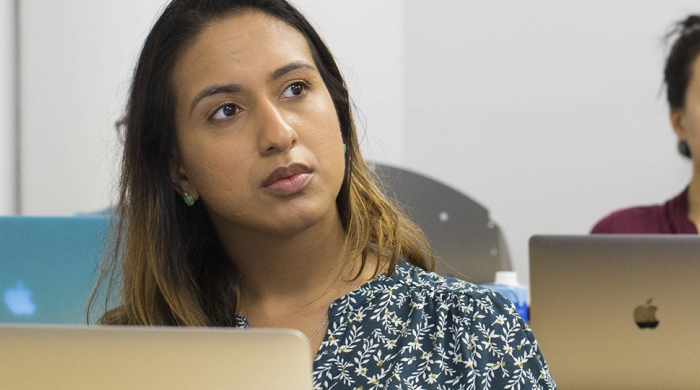
The Steinhardt Fellowship Program
The standard Steinhardt Fellowship package includes an annual stipend, tuition remission for required course work, and student health insurance through your fifth year. The fellowship is reserved for full-time doctoral students. The 2024-2025 stipend is $33,867. Complete details are provided with each offer of admission.

Research Assistantships
Some doctoral students may be appointed to a Research Assistantship. Research Assistants are funded by external grants and work with a principal investigator on a funded research project. Unlike Steinhardt Fellows, Research Assistants agree to work 20 hours per week on an ongoing research project, typically with a team of faculty and other students. Research Assistants may not perform additional work assignments such as teaching or grading.
For the duration of the assistantship, Research Assistants receive funding that includes a stipend, tuition remission for required course work, and student health insurance.
Other Expenses to Consider
Beyond what is covered by your Steinhardt Fellowship or Research Assistantship, you may have additional expenses that you should keep in mind as you plan your budget. These may include, but are not limited to:
- Late registration fees
- Tuition for undergraduate courses
- Tuition for graduate courses not applicable to your degree
- Tuition for courses in excess of the total point requirement for your degree
- Tuition for courses completed after the end of the fifth year
- Tuition for courses and fees used to maintain official enrollment for study leading to a degree after the end of the fifth year; see doctoral student policies for more information
- Student health insurance for students beyond the fifth year (note that students who are employed by NYU, such as Research Assistants or Adjunct Instructors, may receive health insurance as an employee benefit)
How Can I Pay for Graduate School?
- Academics
Savvy tips that make earning an advanced degree—and advancing your career—possible

We asked Eric Moraniec , director of graduate student financial assistance and programs at Sacred Heart University, for insights on how prospective students can finance their graduate school degree programs.
Find the true cost of your program.
The cost of a graduate degree program is not always easy to determine. Some institutions list the price per credit with three-credit courses, meaning the credit fee must be multiplied. Be sure to consider the indirect costs, too, including books and updated laptops, transportation and lunch on the go.
Knowing the bottom line will help you make sound decisions.
Consider financial assistance through the federal government and your degree institution.
One of the myths of graduate school is that there is no financial assistance available to attain advanced degrees. This is not true. In addition to payment plans through your chosen institutions that allow you to pay over time, you can file a free application for federal student aid (FAFSA) for federal direct loans and veterans benefits and a separate Sacred Heart University graduate financial aid application, Moraniec said.
Moraniec suggests that most students borrow federal student loans before seeking private loans and compare private lenders to ensure getting the lowest interest rate.
Research institutional financial assistance.
Depending on your degree field, you may find fellowships and scholarships available to fund your education. In addition, certain groups are eligible for tuition discounts available for seeking higher education.
Know your graduate school loans and benefits.
Federal direct loans are unsubsidized, interest accrues while you are enrolled and there are no payments due while you are enrolled at least half-time. Graduate/professional students can receive up to $20,500 with this loan program.
Federal Direct Grad Plus loans require documentation before they will appear on a student’s billing. The student must file a Plus application for credit approval and electronically sign a promissory note and complete a SHU Plus Loan Certification to authorize the loan amount at Sacred Heart, Moraniec said.
Veterans education benefits come in many different types, including the GI Bill, vocational rehabilitation and survivors and dependents educational assistance.
Be sure you fully understand each program's nuances to create the best package for your situation.
Search for graduate assistant positions.
Working in a lab, mentoring undergraduates as a residence hall director or gaining skills in an office situation—graduate students can often secure campus positions that apply to their subject area or research. Most come with regular stipends, and some include tuition benefits, course credit or housing and meal waivers. Such jobs also offer a chance to gain experience and skills that can be listed on your résumé.
Look for scholarship and fellowship opportunities everywhere.
Grad school funding can come from the most unlikely sources. Moraniec suggests researching town, county and state funding, as well as scholarships specific to the student’s degree program, ancestry, gender and more. Potential sources include local businesses, civic clubs, church and religious groups, employers, professional organizations, unions and special interest groups.
Borrow only what you need.
Moraniec advises students to borrow for the entire year and, if possible, to pay interest in school—even if that is not required by the lender.
Think you’re ready to dive into a graduate degree program at Sacred Heart University?
SHU’s diverse graduate, doctoral and certificate programs offer students the flexibility they need to complete their coursework through a variety of options, including online lessons, evening and weekend classes and asynchronous learning opportunities, to name a few.
Advance Your Career with Our Programs
To learn more about what your graduate program of interest offers, talk to our team of admissions counselors, each of whom specializes in specific programs, either virtually or in person. Email [email protected] , call 203-365-7619 or schedule an appointment today.
Want to hear more from SHU? Subscribe to our newsletters to get the latest updates delivered right to your inbox.

Online Students
For All Online Programs
International Students
On Campus, need or have Visa
Campus Students
For All Campus Programs
Is a Doctorate Degree Worth It?

Know before you read At SNHU, we want to make sure you have the information you need to make decisions about your education and your future—no matter where you choose to go to school. That's why our informational articles may reference careers for which we do not offer academic programs, along with salary data for those careers. Cited projections do not guarantee actual salary or job growth.
Earning a doctorate takes time, money and discipline. Like many things worth doing, the process is challenging but also rewarding. Becoming an expert in your subject area and immersing yourself in your chosen area of study makes the process of earning a doctorate important to many people. Certain professions require or value a doctorate for promotion potential.
In fact, career advancement, love of the subject matter and personal satisfaction are three of the top reasons why Dr. Bridgitte Kiprop '23 , Dr. Jennifer Barry ’23 and Dr. Torialyn Draper Crook earned their doctorates.
- For Kiprop '23, part of her motivation for earning a doctorate in International Business was setting an example for her six children.
- For Barry, ’23, who earned a doctor of education degree in educational leadership, part of her motivation was to prepare for success in meeting her long-term career goal to become a university president.
- And for Crook, earning her doctorate in education was a commitment that she undertook to honor her family’s legacy of valuing education.
How Difficult is Earning a Doctorate?
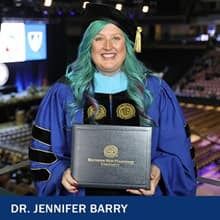
For Kiprop, time management was her key to success. With six children, she had to make the most of any time in the day that she could find. “If I had … five minutes, I would use the five minutes,” she said. “Other times, I was luckier (and had) two hours.”
Despite the time-management challenges of earning an advanced degree while raising her family, Kiprop feels that the process of earning that degree was a way to inspire her children to work hard to meet their own goals.
“I really hope that my children will ... know that whatever it is they feel called to do, whatever their ambitions, their goals are achievable,” she said.
To manage the challenge of advanced studies, having the right people around you as you work on your degree is essential, according to Crook. “Surround yourself with family, friends, colleagues and mentors who can provide encouragement during challenging times,” she said.
Crook stresses that everyone’s journey to earning their doctorate is unique. She recommends being prepared for the unexpected, and remaining flexible in adjusting your path as you work toward completing your degree.
How Long Does a Doctorate Take?
Students may have family commitments, health challenges or need to work full or part-time while attending school . Many students face all of these circumstances. Crook managed to complete her doctorate in 5 years, though it wasn't easy for her. She faced a significant personal health challenge and was raising two children while also attending school.
For Barry, earning her doctoral degree is part of an educational path that started with her bachelor’s degree at SNHU (formerly New Hampshire College) in 2000. She then continued her education to earn a master's degree throughout several jobs and geographic moves.
Barry views her entire educational journey as part of the process that led to meeting her ultimate goal of earning a doctorate.
What Skills Are Needed to Earn a Doctorate?
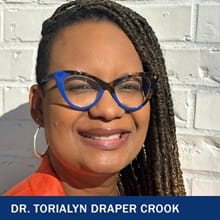
While every academic program is different, Crook finds certain skills and competencies necessary for success, regardless of field. These skills include:
- Building relationships
- Organizational skills
- Self-motivation
- Writing skills
Crook finds building relationships particularly important. While working on her degree, the strong relationship that she developed with her dissertation chairperson proved essential. She also built positive relationships with other doctoral students, which led to a strong peer support network throughout her program.
Kiprop echoes the importance of building relationships in her field as well. For her, building new relationships is a way to open your mind to new experiences and opportunities.
Find Your Program
What types of jobs can you get with a doctorate.
While a doctorate is helpful for working in leadership roles at colleges and universities, there are many opportunities for doctoral degree holders to work at the highest levels in their profession outside of higher education as well.
Some of the top professions that require a doctoral or professional degree and have a faster-than-average predicted growth rate, according to the BLS, are:
- Astronomers* (SNHU does not currently offer graduate degrees in astronomy or physics)
- Biochemists and biophysicists* (SNHU does not currently offer graduate degrees in biochemistry or biophysics)
- Clinical and counseling psychologists* (SNHU does not currently offer doctorates in psychology, but you could start with a bachelor's in psychology , followed by a master's in psychology )
- Higher education teachers and professors — particularly business, computer science and engineering teachers*
Two more examples of areas where a doctorate can help prepare you for advancement in your career are educational leadership and international business.
A doctorate in educational leadership can be a Doctor of Philosophy degree, known as a PhD, or a Doctor of Education degree, known as an EdD. The PhD in Education Leadership typically leads to higher education roles in teaching and research. The EdD in Educational Leadership , which Barry earned, typically leads to leadership and strategy roles in an education setting that may be at the higher education or secondary school level.

A PhD in International Business may include addressing a gap in an existing body of knowledge by conducting research. Kiprop, who earned her doctorate at SNHU, plans to use her degree to research entrepreneurship in small business finance.
Motivated by being from a developing country — Kenya — she has a personal interest in helping grow small businesses in similar developing areas. “I can also use that same knowledge at the New Hampshire level because the issues there perhaps are different but still … relevant,” she said.
Regardless of your program field, the process of earning a doctorate can help you explore ways of applying your newfound and existing knowledge that you may not have considered prior to starting your program.
Is it Better to Have a Master’s or Doctorate?
Both a master’s degree and a doctorate offer opportunities for career advancement. Choosing which to earn, or whether to earn both, is a highly personal decision based on your personal and professional goals and aspirations, according to Crook.
Before deciding which degree is right for you, consider your goals. Speaking with a career counselor or graduate admissions counselor to learn about career options and pathways toward earning the degree can be a helpful step toward making this decision.
In many fields, a master’s degree is enough to move forward in your career. But, earning a doctorate is an opportunity to take your career a step further, according to Crook. That step “gives one the opportunity to direct their career trajectory specifically through research and other specialized skills and knowledge,” she said.
How Valuable is a Doctorate?
A doctorate isn’t for everyone, but it can be right for you depending on your chosen field and career path.
For many people, earning a doctorate is just as important as a personal accomplishment as it is a professional one. “I (always) understood the significance of progressing in my career and staying connected to my field of higher education,” Crook said. “My doctoral journey was worthwhile as it aligned with my career goals and personal aspirations,” she said.
For Barry, the doctorate was worth it because she believes strongly in the power of education . “You see how (education) transforms people’s lives and … gives people opportunities that they didn’t see before,” she said.
She has seen many people earn degrees only for their family members to then continue in their footsteps. “I just think that generationally, (education) is creating pathways for people,” she said.
Deciding whether to pursue a doctorate is ultimately a very personal decision, but one that can lead you to build new relationships and a new knowledge base while helping you reach or exceed your career goals.
A degree can change your life. Find the SNHU doctorate degree that can best help you meet your goals.
*Cited job growth projections may not reflect local and/or short-term economic or job conditions and do not guarantee actual job growth. Actual salaries and/or earning potential may be the result of a combination of factors including, but not limited to: years of experience, industry of employment, geographic location, and worker skill.
A former higher education administrator, Dr. Marie Morganelli is a career educator and writer. She has taught and tutored composition, literature, and writing at all levels from middle school through graduate school. With two graduate degrees in English language and literature, her focus — whether teaching or writing — is in helping to raise the voices of others through the power of storytelling. Connect with her on LinkedIn .
Explore more content like this article

How to Get a Master's Degree

Is a Bachelor's Degree Worth It?

Is a Master’s Degree Worth It?
About southern new hampshire university.

SNHU is a nonprofit, accredited university with a mission to make high-quality education more accessible and affordable for everyone.
Founded in 1932, and online since 1995, we’ve helped countless students reach their goals with flexible, career-focused programs . Our 300-acre campus in Manchester, NH is home to over 3,000 students, and we serve over 135,000 students online. Visit our about SNHU page to learn more about our mission, accreditations, leadership team, national recognitions and awards.
University of South Florida
Lifelong Learning
Office of University Community Partnerships
Main Navigation

How to Finance Your Master's Degree or Continuing Education
- Leigh Perkins
- January 19, 2022
- Professional Development
- Text-based Story
Don’t assume grad school or continuing education is out of reach for your budget. Paying for your post-grad or professional courses can be a challenge, but it’s completely doable. Put a little research, creative problem solving, and our easy tips into the task, and you’ll figure out how to finance your master’s degree or continuing education .
Financing Higher Education
According to Sallie Mae, almost a quarter of school costs are paid by grad students’ earnings or personal savings. If you don’t have that kind of cash flow, though, consider other options for financing higher education.
Start With Free Money
Loans may need to be part of your equation, but it’s best to begin your calculations with financial aid that doesn’t have to be repaid.
An estimated $2.6 billion in financial aid was left on the table in 2018 because students failed to fill out the Free Application for Federal Student Aid (FAFSA) from the U.S. Department of Education. And FAFSA is not just for undergraduates. It can help you land federal aid based on financial need for graduate school, too. The application is free, and there are several free-money options available to you when your FAFSA is complete, such as federal work study programs.
Grants and Fellowships
Federal aid is applicable to some continuing education programs, such as grants for medical residency or the Pell Grant for postbaccalaureate teacher certification, but federal aid in the form of grants does not apply to most graduate programs.
For graduate school, grants and fellowships are almost interchangeable terms, the main difference being what the institution bestowing the funding prefers to call it. There are government-backed grants, from organizations like the National Institutes of Health or the Department of Energy, and fellowships funded by private organizations, such as the Alfred P. Sloan Foundation or the American Economic Association. The best place to begin searching for grants and fellowships is through the websites of the schools you’re considering, in particular the programs you are targeting for grad school. You can also check out online scholarship search tools.
Most grants and fellowships are competitive, so do your homework, complete your applications carefully, and submit early. Preferably, you’ll be ready to hit send on your application the day you learn you’re accepted into your grad school program of choice.
Scholarships
Graduate tuition can cost tens of thousands of dollars each year. Because graduate students are considered independent, you will report your own income on the FAFSA, which could make you eligible for more need-based scholarships. Grad students can check out USF’s STARS Scholarship database to read about USF Foundation Scholarships and many other scholarships to students enrolling in master’s programs . There are millions of dollars available to grad students for national and niche scholarships .
Can you qualify for specific scholarships that take your background, interests, or undergrad degree into account?
- Your heritage: There are scholarships designated just for Hispanic grad students, Native Americans, Korean Americans, Pacific Islanders, and more.
- Your alma mater: You may qualify for a discount if you apply to graduate school where you earned your bachelor’s degree.
- Your area of specialization: Check into field-specific graduate scholarships, such as a master’s in education, women in technology, accounting scholarships, and MBA scholarships.
Assistantships
Graduate assistantships allow you to work in a support role at a university under the supervision of a faculty member. You may teach, be a research assistant, do clerical tasks, or help with grading. USF graduate assistants earn a stipend and are eligible for tuition payment and some additional benefits, such as health insurance.
Employee Benefits
Under U.S. tax code, employers may offer up to $5,250 per year in tuition reimbursement for college courses, which is deductible for your company and not counted as taxable income for you. More than half of employers are estimated to currently offer tuition assistance. If yours isn’t one of them, make a sales pitch. One possible incentive: Signing a contract to commit to working for the company for a minimum term after receiving your graduate degree.
College Savings Account
If you didn’t run through your entire 529 plan in undergraduate school, you can apply what’s left to your graduate school costs. Though the time horizon is shorter to save for graduate school, it is also possible to set up a 529 plan dedicated just for graduate school.
Take a Look at Loans
Although they account for only 25 percent of all students in higher education, graduate students account for nearly half of student debt . Because there is no cap for graduate school borrowing – up to the full cost of attendance charged by the college – nearly a quarter of graduate borrowers take out more than the lifetime limit for undergraduate borrowers in just a single year of grad school.
It is one thing to compare the average undergraduate debt ($28,950) to an MBA ($66,300). But it is a whole new level of payback stress for a law degree ($145,000) or a medical degree ($201,490). Add the fact that interest rates are higher for grad school than for undergrad, and the debt can turn into a long-term burden.
Wondering how to minimize the hit to your financial future when you really need a loan for graduate school? Take out only what is absolutely necessary, access every tax benefit available, and pull out all the stops to save pennies and earn cash while in grad school.
These are the types of loan programs available for graduate students:
- Federal Direct Unsubsidized Loans: Sometimes called Stafford Loans, these are not based on financial need and do not require a credit check. You are responsible for paying all interest on these loans, which begins accruing while you’re still in school and during your grace period or deferment. It is best to max out these loans before you sign on to PLUS or private loans.
- Federal Direct Graduate PLUS Loans: These loans are for expenses not covered by other financial aid offered by your school. They require a credit check and carry a higher fixed-interest rate than federal direct loans.
- Private Loans: Depending on your credit score or a co-signer’s endorsement, you could qualify for a competitive rate on a loan from a private bank or other lender, usually without the origination and processing fees associated with federal programs. The downside is they don’t offer long forbearance periods. If you are planning on law school, medical school or business school, it’s likely you’ll find a lender offering a loan specific to your degree.
Paying for Continuing Education
While there are not as many options to finance your continuing education, the upside is that career training, certifications, and continuing ed programs are much less expensive than graduate school.
Philanthropic organizations, private agencies, state education departments, and the schools themselves often offer scholarships for continuing education and certification programs. For example, there are specific scholarships available for paralegal students .
State societies, clubs, and professional groups often subsidize travel and attendance at conferences, CEU courses, and training programs. If you’re in a regional human resources group, for example, they might underwrite your tuition for SHRM certification .
Federal student loans only apply to full-time graduate students, so stand-alone certification courses or part-time professional development programs don’t qualify. However, several private lenders do offer loans for career training programs. Sallie Mae’s Career Training Smart Option Student Loan is designed specifically for nondegree-seeking students, professional certifications, and culinary and technical school students.
If you’re confident the return on your investment will be adequate (and fairly immediate), you can also consider paying for a course with a credit card, but do so cautiously. Interest rates and fees for credit cards are often triple or quadruple a student loan rate.
The good news is that the IRS allowance for employer tuition reimbursement applies to career training and continuing education. The bad news is that only about half of employers offer this in an employee’s benefits package. If yours does not include the $5,250 that can be deducted by your company for courses, make a suggestion to your boss and to HR to add it. If it’s not a formal perk but there is a program that will help you perform your job better, write a letter to your supervisor explaining the benefits to your business. In your letter, ask if the company would be willing to pay for the program or at least approve paid time off for instruction.
USF Can Help You Reach Your Next Goal
No matter where you’re headed in your career, USF Corporate Training and Professional Education is here to guide you. Thinking of graduate school? We offer exceptional GMAT and LSAT prep courses. Planning a big pivot? Navigate a career change with our business, technology, and leadership training. Browse our programs to see if they can point you in the right direction for continuing education.
Return to article listing
Explore More Categories
- Director's Corner
- Hospitality
- Human Resources
- K-12 Education
- Leadership and Management
- Process Improvement
- Project Management
- Sales and Marketing
About Corporate Training and Professional Education
USF Corporate Training and Professional Education empowers people to craft their future without limits through engaging professional growth learning and certification programs. Its programs focus on an array of topics – human resources, project management, paralegal, process improvement, leadership skills, technology, and much more.
- Share full article
Advertisement
Supported by
Some Colleges Will Soon Charge $100,000 a Year. How Did This Happen?
Some Vanderbilt students will have $100,000 in total expenses for the 2024-25 school year. The school doesn’t really want to talk about it.

By Ron Lieber
Reporting from Vanderbilt University in Nashville
It was only a matter of time before a college would have the nerve to quote its cost of attendance at nearly $100,000 a year. This spring, we’re catching our first glimpse of it.
Listen to this article with reporter commentary
Open this article in the New York Times Audio app on iOS.
One letter to a newly admitted Vanderbilt University engineering student showed an all-in price — room, board, personal expenses, a high-octane laptop — of $98,426. A student making three trips home to Los Angeles or London from the Nashville campus during the year could hit six figures.
This eye-popping sum is an anomaly. Only a tiny fraction of college-going students will pay anything close to this anytime soon, and about 35 percent of Vanderbilt students — those who get neither need-based nor merit aid — pay the full list price.
But a few dozen other colleges and universities that reject the vast majority of applicants will probably arrive at this threshold within a few years. Their willingness to cross it raises two questions for anyone shopping for college: How did this happen, and can it possibly be worth it?
Who Pays What
According to the College Board, the average 2023-24 list price for tuition, fees, housing and food was $56,190 at private, nonprofit four-year schools. At four-year public colleges, in-state students saw an average $24,030 sticker price.
That’s not what many people pay, though, not even close. As of the 2019-20 school year, according to federal data that the College Board used in a 2023 report , 39 percent of in-state students attending two-year colleges full time received enough grant aid to cover all of their tuition and fees (though not their living expenses, which can make getting through school enormously difficult). At four-year public schools, 31 percent paid nothing for tuition and fees while 18 percent of students at private colleges and universities qualified for the same deal.
Those private colleges continue to provide hefty discounts for people of all sorts of incomes. A National Association of College and University Business Officers study showed private nonprofit colleges and universities lowering their tuition prices by 56 percent from the rack rate during the 2022-23 school year.
Vanderbilt provides discounts, too, and its financial aid is extraordinarily generous. This year, it announced that families with income of $150,000 or less would pay no tuition in most instances .
Still, over 2,000 students there who get no need-based or merit aid will soon pay $100,000 or more. Why does Vanderbilt need all of that money?
Where the Money Goes
At a few small liberal arts colleges with enormous endowments, even $100,000 would not cover the average cost of educating a student, according to the schools. Williams College says it spends roughly $50,000 more per student than its list price, for instance.
In other words, everyone is getting a subsidy. Perhaps its list price should be over $100,000, too, so that its endowment is not offering unneeded help to wealthy families. Or, perhaps, a price that high would scare away low-income applicants who do not realize that they might get a free ride there.
According to Vanderbilt, its spending per undergraduate is $119,000. “The gap between the price and cost of attendance is funded by our endowment and the generous philanthropy of donors and alumni,” Brett Sweet, vice chancellor for finance, said in an emailed statement.
No one at the school would meet with me to break this figure down or get on the phone to talk about it. But Vanderbilt’s financial statements offer clues to how it spends money. In the 2023 fiscal year, 52 percent of its operating expenses went to faculty, staff and student salaries and wages, plus fringe benefits.
Robert B. Archibald and David H. Feldman, two academics who wrote “ Why Does College Cost So Much? ,” explained in their book why labor costs were so tricky at these institutions.
“The critical factors are that higher education is a personal service, that it has not experienced much labor-saving productivity growth, and that the wages of the highly educated workers so important at colleges and universities have soared,” they said. “These are economywide factors. They have little to do with any pathology in higher education.”
Critics of the industry still believe that a kind of administrative bloat has set in, driving up tuition with outsize salaries. But what is bloat, really?
Administrators oversee compliance, like the laws that have made it possible for disabled people to get to and through college and keep schools from discriminating against women. If we don’t like regulation, we can vote for different legislators.
Similarly, families in a free market can make alternative choices if they want fewer mental health practitioners and their bosses, computer network administrators, academic advisers or career counselors. And yet the first (prescreened) question that Vanderbilt’s chancellor, Daniel Diermeier, answered on family weekend this past fall was about whether Vanderbilt should invest even more in career advising in the wake of the school’s five-spot decline in the annual U.S. News rankings .
Is It Worth It?
If many families are not exactly lining up for a cut-rate residential undergraduate education, they’re still asking plenty of good questions about value. So is a $400,000 college education ever worth it?
It depends, and you knew that answer was coming, right?
Most college shoppers wonder about income outcomes, and it’s possible to search by undergraduate major on the federal government’s College Scorecard website . This program-level data exists for alumni who are four years out from graduation, though only for those who received any federal financial aid.
Vanderbilt’s biomedical/medical engineering majors have median earnings of $94,340 four years out. English language and literature majors are earning $53,767.
Those are fine results, but are they exclusive to Vanderbilt? “You could get an engineering degree at a state flagship university that’s just as valuable as something you’d get at Vanderbilt,” said Julian Treves , a financial adviser and college specialist whose newsletter tipped me off to the goings-on there.
I spent a few days trying to get Vanderbilt’s vice provost for university enrollment affairs, Douglas L. Christiansen , to talk to me and answer these questions squarely and more expansively, but I did not succeed. A university spokeswoman sent me some generalities in his name. “We are committed to excellence at all levels, from the quality of our faculty, programming, facilities and research labs to the services we provide to support the academic, emotional and social well-being of our students,” went the statement.
In anticipation of the absence of a substantive reply, I attended a group information session for 125 or so prospective students and asked there, too. The senior admissions officer who took the question refused to answer. I’d never seen that before, and I’ve been to these sessions at dozens of schools over the years.
But really, why should an actor in a competitive marketplace answer that question if the person doesn’t absolutely have to? Without publicly available, industrywide quantitative data on quality — happiness scores, customer satisfaction, measures of learning, return on friendship, the strength of career networks — the list price alone serves as a signal of excellence, to some shoppers at least.
And thousands of applicants respond to the signal each year by volunteering to pay the list price, even as the school rejects the vast majority of applicants. Or maybe they volunteer precisely because Vanderbilt and schools like it reject the vast majority of applicants.
So a $100,000 list price is not our highest-priority outrage. The spectacle of wealthy people freely purchasing luxury services is nothing new, even if it is a totally worthy object of scrutiny (and an understudied phenomenon by academics themselves, ahem).
What is a problem, then? Brent Joseph Evans , an associate professor of public policy and higher education at Vanderbilt’s college of education and human development, started his career as an admissions officer at the University of Virginia. There, he sold the institution to boarding school students in New England and teenagers in the Appalachian foothills.
The former group might pay $100,000 per year, though many of them won’t get into the Vanderbilts of the world in the first place. They will surely find their way somewhere.
But that latter group? Professor Evans is worried about their access to any school at all.
“We should care about whether they get into a state university system at a low cost and find a well-paying career that can keep them in the middle class,” he said. “I do think that sometimes any tension over what elite colleges are doing moves us away from what we should be caring about as a society.”
Read by Ron Lieber
Audio produced by Parin Behrooz .
An earlier version of this article misstated the surname of Vanderbilt’s vice provost for university enrollment affairs. He is Douglas L. Christiansen, not Christensen.
How we handle corrections
Ron Lieber has been the Your Money columnist since 2008 and has written five books, most recently “The Price You Pay for College.” More about Ron Lieber

- Weather
Search location by ZIP code
Jcps seniors can get nursing degree paid for, graduate with a job thanks to new program.
- Copy Link Copy {copyShortcut} to copy Link copied!

GET LOCAL BREAKING NEWS ALERTS
The latest breaking updates, delivered straight to your email inbox.
Jefferson County School District seniors interested in nursing can now graduate from high school with a licensed practical nursing degree.
JCPS, Norton Healthcare, and the Galen College of Nursing are partnering to make the program possible. Thirty JCPS seniors will be able to take classes at Galen, while finishing their high school classes online. Norton plans to pay for each student's tuition at Galen, and the student will then work for Norton after graduation.
"When you have a powerhouse of nurse leaders, workforce development, talent acquisition leaders in academia, both secondary and post-secondary, you have a great storm of potential," said Norton Healthcare's Brittany Burke. "We have crossed Galen's LPN curriculum with our Norton Health Care hospitals and facilities to provide the best learning experiences for high school seniors."
Upon graduation, students will be licensed practical nurses, or LPNs. If they choose to become a registered nurse, they can continue to work at Norton while they continue their education.
"The scopes [between an LPN and an RN] are similar in many aspects. There are some differences when it comes to medication, I.V. preparation, blood transfusions and things of that nature. So the LPN is a great first step into growing your career into a nursing and nursing pathway," said Burke.
Robert Garcas Diaz, a junior who is already in the nursing academy at Southern High School, is excited about the opportunity.
"It helps me further my career, I think most importantly, by saving me time. It's a program that starts during high school, so I wouldn't have to take these classes in college. And because it's paid for, it takes a lot of stress off of me and my family for payment because that's always one of the bigger stresses when it comes to higher learning," said Diaz.
Applications for the program are now being accepted through Norton. You can fill out an interest form here . Thirty applicants will be accepted, but Norton and Galen hope to expand the program to more students in the coming years.

IMAGES
VIDEO
COMMENTS
Students enrolled in the economics Ph.D. program at Emory University typically receive full funding, according to the Georgia university's website. The stipend provided to students is $36,376 per ...
Students are able to take as many programs outside literature as they wish. Typically, all PhD students receive a "stipend, tuition, and fees support, plus six years of full coverage for health and dental insurance premiums.". 5. Rice University, Jones Graduate School of Business.
Updated: February 6th, 2024. Fully funded PhD programs offer students seeking their doctor of philosophy degrees the ultimate experience. With the average cost of a PhD at nearly $100,000, students are able to focus on their studies without worrying about paying for their degrees or living expenses. Keep reading to learn about some of the top ...
The first way to begin your search is to target PhD programs specifically, since this is a research-based degree. Start with a Google search that includes: PhD + your target discipline + "full funding" (in quotations). You can also try in place of "full funding" the phrases "fully funded" or "full financial support".
According to the National Center for Education Statistics (NCES), tuition and fees cost, on average, $20,513 for the 2021-2022 academic year, so you'll spend anywhere from $61,539 to $102,565 to ...
Fully funded means that a PhD student doesn't pay any of the costs of attending a doctoral program. This generally includes all tuition and fees required for full-time enrollment in the program. In many cases, the university covers these costs. Students may also receive funding from private businesses or sponsors.
The FAFSA form for becomes available for course starting the following year on 1 October annually. So if you're planning to study a Masters or PhD starting in Autumn 2024, you'll be able to fill in the FAFSA from 1 October 2023. The FAFSA deadline for 2023-24 is 30 June 2024. Search for a PhD in the USA.
According the Education Data Initiative, the average cost of a doctorate degree (which typically takes four to eight years) is $150,835. The average student loan debt for this kind of degree is $112,080. That can be a daunting sum, but a fully funded PhD program can offset part or all of these costs. In addition to financing tuition and fees ...
All PhD students at Columbia University get full funding. Columbia has particularly strong programs in medicine and sciences, as well as public administration and policy. Boston College's Department of Psychology offers a four- to five-year, full-time, fully-funded, research-oriented doctoral program. Students admitted Duke University's PhD ...
Harvard guarantees full financial support to PhD students—including tuition, health fees, ... grant toward tuition and fees—paid in full for years 1 through 4, plus the dissertation completion year, with a partially subsidized dental plan option available ... In some programs, the timing and structure of living expense support may vary from ...
Annual Median Salary (Bureau of Labor Statistics): $208,000. Job Growth: 4%. One of the more specialized high paying doctorate programs is in immunology. Immunology is the study of disease prevention and immunity. Due to the specialized nature of the study here, jobs are typically well paid and much more specific.
A political science Ph.D. graduate may work as an adviser to politicians or political candidates. Related: 10 Jobs You Can Do With a Political Science PhD (Plus Tips) 9. Engineering National average salary: $100,833 per year General engineering Ph.D. programs allow students to prepare for a career in a wide variety of industries. A Ph.D. in ...
Rutgers University, PhD in Psychology (Piscataway, NJ): All admitted PhD students are guaranteed 5 years of funding (4 years for those with a Master's degree), provided they remain in good standing. Financial aid covers tuition and includes a 10-month stipend or salary. Additional summer funding is available through teaching or grant funding.
Most PhD programs expect students to study full-time. In exchange, they're usually offered a stipend — a fixed sum of money paid as a salary — to cover the cost of housing and other living expenses. How much you get as a stipend depends on your university, but the range for PhD stipends is usually between $20,000 - $30,000 per year.
The average yearly tuition for a PhD program is slightly above $16,000, which means students will invest about $80,000 in tuition fees alone for a five-year program. Add in fees, cost-of-living, travel expenses and the figure can easily surpass six figures. Yet, it is possible to fund a PhD program without breaking the bank and going into debt.
They are paid for primarily by the U.S. government and are offered in a number of fields. The Ford Foundation Fellowship Program: These grants offer three years of funding for those pursuing a PhD or a Sc.D. degree. They provide an annual stipend of $24,000 for research-based programs.
PhD studentship - Defining the mechanisms underpinning HIF-1 and HIF-2 dependent transcriptional specificity in hypoxia. Newcastle University Biosciences Institute. Award summary. 100% of home tuition fees paid and annual living expenses of £18,622. Overview. The cellular response to low oxygen levels (hypoxia), is crucial for cell survival ...
A doctoral degree is a significant investment in your future, and financing your education is a critical factor to consider. While the funding we provide covers the basic standard cost of attendance determined by Stanford University for a modest life as a graduate student, accepting an offer from a doctoral program has significant personal, professional, and financial implications. Below you ...
Tuition for the higher education doctoral programs on our list averages $905 per credit. With the average program requiring 64 credits, the average total cost of an online Ph.D. in higher ...
Get an employer to pay for grad school. Secure a scholarship or fellowship. Explore tuition-free grad schools. Consider doctoral programs. Work for the grad school. Reach out to the admissions office.
Starting Salary: $116,100. If you're interested in pursuing a PhD in information sciences and studies, you'll be looking a commitment of 4-5 years of intensive study. These programs focus on advanced studies of qualitative and quantitative methods in information science, statistics, and theoretical foundations.
The Steinhardt Fellowship Program. The standard Steinhardt Fellowship package includes an annual stipend, tuition remission for required course work, and student health insurance through your fifth year. The fellowship is reserved for full-time doctoral students. The 2024-2025 stipend is $33,867. Complete details are provided with each offer of ...
We are available by email and phone during our operating business hours, M-F: 9am - 5pm. (212) 854-4057. Email: [email protected]. We also offer Drop In Zoom Hours, M - F 10:30am - 12:30pm EST, password 211086. Online appointments can be made through Starfish for current students, and deposited admitted students.
This analysis looks at graduate student pay from another angle: that of program outcomes. Setting aside the debate over whether students deserve higher wages, there may be another reason for which student pay should be higher. If better wages lead to greater success, then this will be reflected in program outcomes, and higher-paying departments can reap reputational benefits as a result.
Be sure you fully understand each program's nuances to create the best package for your situation. Search for graduate assistant positions. Working in a lab, mentoring undergraduates as a residence hall director or gaining skills in an office situation—graduate students can often secure campus positions that apply to their subject area or ...
Regardless of your program field, the process of earning a doctorate can help you explore ways of applying your newfound and existing knowledge that you may not have considered prior to starting your program. Is it Better to Have a Master's or Doctorate? Both a master's degree and a doctorate offer opportunities for career advancement ...
Federal aid is applicable to some continuing education programs, such as grants for medical residency or the Pell Grant for postbaccalaureate teacher certification, but federal aid in the form of grants does not apply to most graduate programs. For graduate school, grants and fellowships are almost interchangeable terms, the main difference ...
Still, over 2,000 students there who get no need-based or merit aid will soon pay $100,000 or more. Why does Vanderbilt need all of that money? Where the Money Goes. At a few small liberal arts ...
CNOs need at least a bachelor's degree, but the American Nursing Association advises having a master's, preferably with a concentration in nursing leadership, or a doctoral degree (D.N.P. or ...
Jefferson County School District seniors interested in nursing can now graduate from high school with a licensed practical nursing degree. JCPS, Norton Healthcare, and the Galen College of Nursing ...